Gli angeli silenziosi
-
0
-
0Shares
(testo e foto di Edoardo Agresti)
- English version below -
Si sente dire, sempre più spesso, che siamo in guerra anche se con dinamiche diverse da quelle che tristemente conosciamo. In parte questa affermazione è vera perché, come in ogni conflitto, vediamo chi combatte in prima linea fronteggiando il nemico direttamente sul campo e chi invece si occupa di organizzare le retrovie, di pianificare le attività, di venire incontro alle esigenze dei più deboli. In questa sorta di guerra mondiale chi sta in trincea sono le migliaia di medici, infermieri, anestesisti, dottori che, rischiando la loro vita e, ahimè, anche sacrificandola, cercano di sconfiggere questo male subdolo e invisibile. E' indubbiamente una metafora condivisibile, ma assimilare questa emergenza ad una guerra non deve però farci smettere di ragionare secondo le logiche della malattia e del malato.
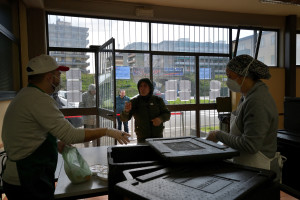 Susan Sontag diceva: 'La guerra è una delle poche attività umane a cui la gente non guarda in modo realistico; ovvero valutandone i costi o i risultati. In una guerra senza quartiere, le risorse vengono spese senza alcuna prudenza. La guerra è pura emergenza, in cui nessun sacrificio sarà considerato eccessivo.' Questo è infatti il rischio più grande ossia che in nome di qualcosa che di fatto non è, si cerchi di giustificare tutto in nome dell'emergenza: dalle libertà personali alle risorse economiche. Spesso di sente dire di 'limitare le perdite', di dare la priorità a chi 'ce la può fare', di togliere umanità al malato perché è – come dice Daniele Cassandro - 'un'inevitabile perdita civile'. Si rischia di mettere da parte gli ultimi perché inutili, non servono a combattere, spesso tolgono risorse.
Susan Sontag diceva: 'La guerra è una delle poche attività umane a cui la gente non guarda in modo realistico; ovvero valutandone i costi o i risultati. In una guerra senza quartiere, le risorse vengono spese senza alcuna prudenza. La guerra è pura emergenza, in cui nessun sacrificio sarà considerato eccessivo.' Questo è infatti il rischio più grande ossia che in nome di qualcosa che di fatto non è, si cerchi di giustificare tutto in nome dell'emergenza: dalle libertà personali alle risorse economiche. Spesso di sente dire di 'limitare le perdite', di dare la priorità a chi 'ce la può fare', di togliere umanità al malato perché è – come dice Daniele Cassandro - 'un'inevitabile perdita civile'. Si rischia di mettere da parte gli ultimi perché inutili, non servono a combattere, spesso tolgono risorse.
Fortunatamente c’è però anche tutto un altro mondo meno mediatico, meno appariscente, ma altrettanto importante e fondamentale che agisce in silenzio. Sono i volontari delle varie associazioni: Croce Rossa, Protezione Civile, enti religiosi come la Caritas e enti laici. Tutti, come non mai, impegnati a lavorare per aiutare chi, purtroppo, sta vivendo questo momento di emergenza con maggiore difficoltà.
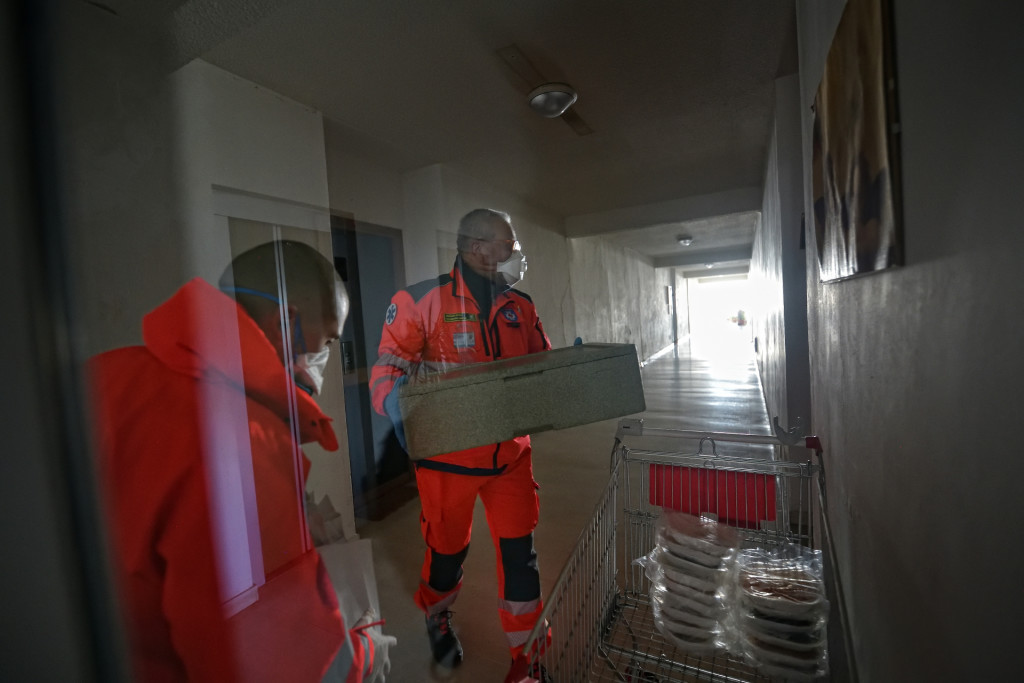
Sono ormai 20 giorni che, su lettera d’incarico del Comune di Firenze, sto lavorando per documentare il vivere quotidiano sotto la minaccia del Covid-19. Dopo aver raccontato il graduale svuotamento della città, i presidi da parte dell’esercito e delle forze dell’ordine nei luoghi simbolo di Firenze, le attività che ancora continuano a lavorare mi sto concentrando su ciò che resta e, in particolare, su chi fornisce dei servizi spinto unicamente da uno spirito di solidarietà.
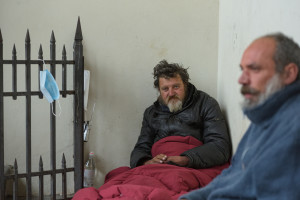 Sto seguendo i senza fissa dimora la cui casa sono le strade della città. A loro non puoi chiedere ‘stayathome’ perché non ce l’hanno. E allora li vedi in giro per la città come Franco e Alessandro che stanno sotto i portici di SS. Annunziata con il sacco a pelo e una radiolina donata da uno che passava di lì. In tempi normali la loro presenza si sarebbe mescolata tra la gente intenta a fare spese o tra i turisti che affollavano il centro storico di Firenze; erano i cosiddetti ‘invisibili’. Adesso invece sono delle presenze forti perché le strade cittadine sono loro. Quando la volontaria Elisabetta inizia la distribuzione gratuita dei pasti la piazza si anima e decine di persone in difficoltà si avvicinano al banco allestito in esterno.
Sto seguendo i senza fissa dimora la cui casa sono le strade della città. A loro non puoi chiedere ‘stayathome’ perché non ce l’hanno. E allora li vedi in giro per la città come Franco e Alessandro che stanno sotto i portici di SS. Annunziata con il sacco a pelo e una radiolina donata da uno che passava di lì. In tempi normali la loro presenza si sarebbe mescolata tra la gente intenta a fare spese o tra i turisti che affollavano il centro storico di Firenze; erano i cosiddetti ‘invisibili’. Adesso invece sono delle presenze forti perché le strade cittadine sono loro. Quando la volontaria Elisabetta inizia la distribuzione gratuita dei pasti la piazza si anima e decine di persone in difficoltà si avvicinano al banco allestito in esterno.
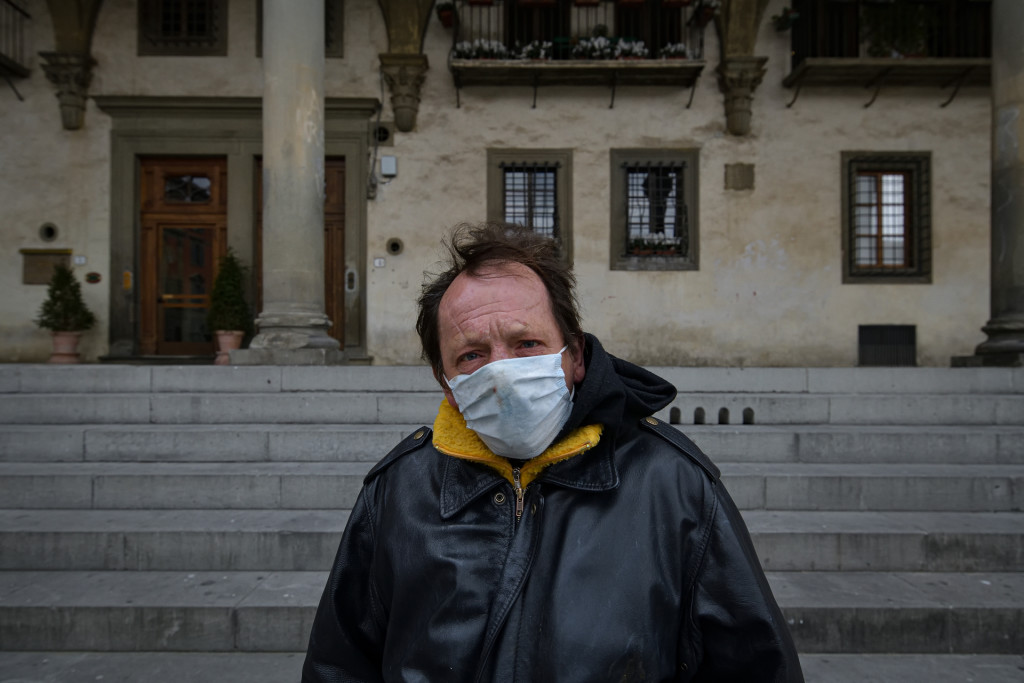
Luigi, 59 anni, noto come Mastrogigi un artista di strada che da oltre 15 anni si esibisce in Firenze, come statua vivente, tra Piazza della Repubblica e la Galleria degli Uffizi. Originario si S. Margherita Ligure adesso vive in un albergo popolare cittadino. Riceve il reddito di cittadinanza. Tutti i giorni va alla Caritas di SS. Annunziata per mangiare.
Ci sono artisti di strada come Luigi, che non ha più il suo pubblico; emarginati perché ex detenuti come Andrea ai quali nessuno fa più l’elemosina; prostitute come Carla, che hanno perso i loro clienti e poi spacciatori, drogati, alcolizzati o altri ai quali la fortuna ha voltato le spalle. E’ grazie a questi centri di accoglienza che riescono a vivere. Il mangiare viene preparato e gestito come una grande mensa aziendale. Marzio, uno dei responsabili della Caritas fiorentina, mi racconta che i cuochi vengono incontro anche alle esigenze di coloro che per motivi religiosi o di salute hanno bisogno di pasti speciali. E’ incredibile come, sebbene si viva in emergenza, la solidarietà e l’umanità di certe associazioni non venga meno.
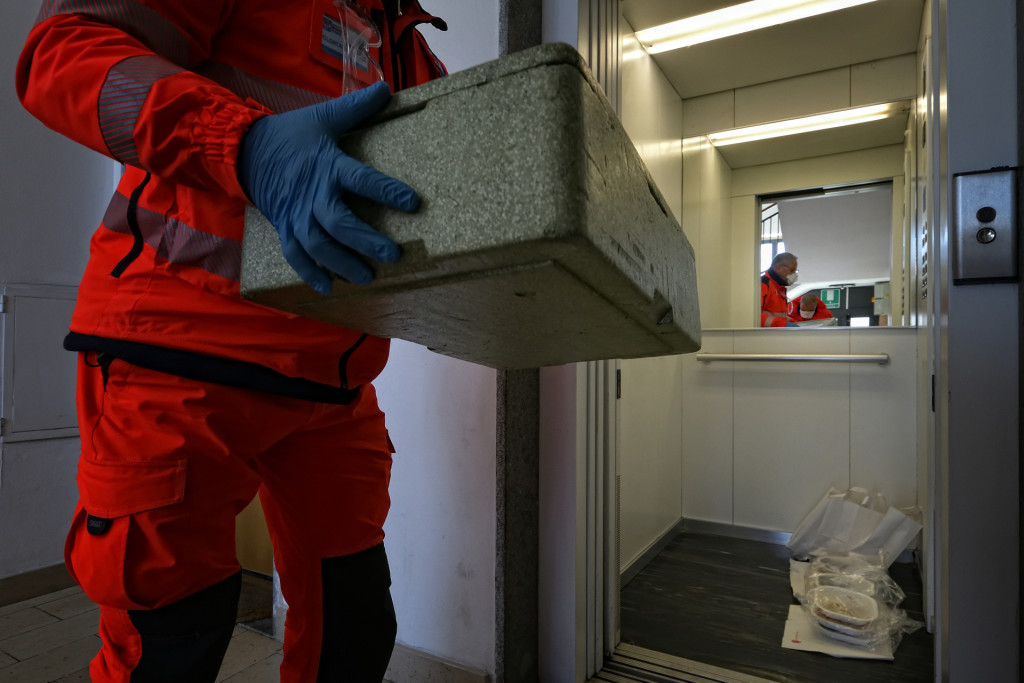 E poi c’è la Protezione Civile che si trova ad affrontare un’emergenza diversa nelle sue metodiche rispetto a quelle che normalmente accadono. Mi diceva Luca, uno dei responsabili della sezione fiorentina, che nella gestione di un terremoto, ad esempio, si cerca di creare dei locali per creare comunità e condivisione; dal punto di vista psicologico, infatti, è importante creare degli spazi dove stare insieme per superare anche con la forza degli altri il trauma subito. Qui invece si deve fare l’opposto, si deve isolare. Ecco quindi che nasce un campo, allestito in tre giorni in un grande parcheggio limitrofo all’aeroporto di Peretola, dove si posizionano delle unità abitative singole con all’interno un letto, una scrivania – sulla quale viene lasciato carinamente un romanzo -, il bagno con doccia, aria condizionata e riscaldamento. L’opera idraulica per gestire gli scarichi è stata incredibile e la scelta di un luogo dove nelle vicinanze ci fossero già delle fosse biologiche è stata vincente. In questo campo trascorrono la quarantena chi è in isolamento volontario, come due operatori della Croce Rossa di ritorno da dieci giorni sul campo a Bergamo, sia chi invece non ha una struttura che lo possa accogliere come dei detenuti in attesa di giudizio.
E poi c’è la Protezione Civile che si trova ad affrontare un’emergenza diversa nelle sue metodiche rispetto a quelle che normalmente accadono. Mi diceva Luca, uno dei responsabili della sezione fiorentina, che nella gestione di un terremoto, ad esempio, si cerca di creare dei locali per creare comunità e condivisione; dal punto di vista psicologico, infatti, è importante creare degli spazi dove stare insieme per superare anche con la forza degli altri il trauma subito. Qui invece si deve fare l’opposto, si deve isolare. Ecco quindi che nasce un campo, allestito in tre giorni in un grande parcheggio limitrofo all’aeroporto di Peretola, dove si posizionano delle unità abitative singole con all’interno un letto, una scrivania – sulla quale viene lasciato carinamente un romanzo -, il bagno con doccia, aria condizionata e riscaldamento. L’opera idraulica per gestire gli scarichi è stata incredibile e la scelta di un luogo dove nelle vicinanze ci fossero già delle fosse biologiche è stata vincente. In questo campo trascorrono la quarantena chi è in isolamento volontario, come due operatori della Croce Rossa di ritorno da dieci giorni sul campo a Bergamo, sia chi invece non ha una struttura che lo possa accogliere come dei detenuti in attesa di giudizio.
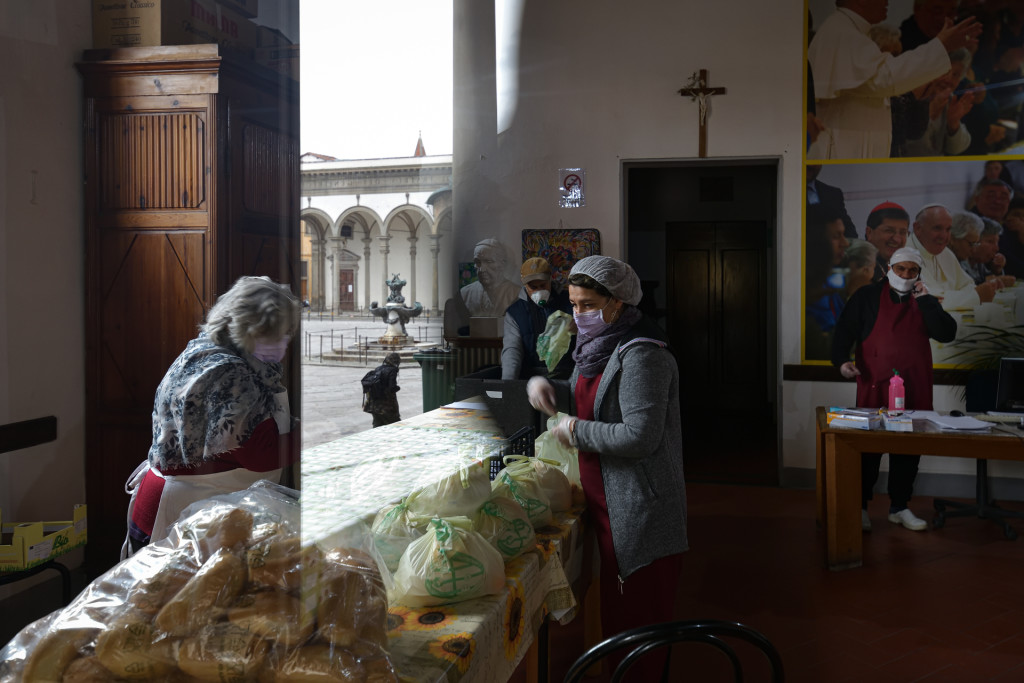 E’ sempre grazie al lavoro infaticabile dei volontari che la Protezione Civile recapita i pasti nelle case di coloro che non possono uscire perché positivi al tampone corona virus, ma che non necessitano di ricovero ospedaliero. Il protocollo impedisce il contatto diretto con i beneficiari e quindi i pasti vengono lasciati negli ascensori dei condomini per famiglie che abitano nei piani alti oppure lasciati su un tavolino o un grande cesto davanti alla porta d’ingresso.
E’ sempre grazie al lavoro infaticabile dei volontari che la Protezione Civile recapita i pasti nelle case di coloro che non possono uscire perché positivi al tampone corona virus, ma che non necessitano di ricovero ospedaliero. Il protocollo impedisce il contatto diretto con i beneficiari e quindi i pasti vengono lasciati negli ascensori dei condomini per famiglie che abitano nei piani alti oppure lasciati su un tavolino o un grande cesto davanti alla porta d’ingresso.
I volontari, degli angeli silenziosi che mettono a disposizione il loro tempo e la loro salute per gli altri. Li sto seguendo da tempo ormai e, pur stanchi e provati, li ho sempre visti sorridenti e pronti a rispondere alle richieste anche in piena notte.
A loro va il mio profondo rispetto e la mia immensa gratitudine.
Edoardo Agresti
(NdR Edoardo e' da sempre uno dei membri piu' sensibili, di Shoot4Change. Saperlo per strada, rischiando in prima persona per raccontarci il meraviglioso lavoro degli angeli silenzio ci impone gratitudine e rispetto. Grazie Edoardo, per quello che fai e per come lo racconti)
GALLERIA FOTOGRAFICA
The silent angels
(text and photos by Edoardo Agresti)
We hear more and more often that we are at War, even if with different dynamics from those we sadly know. In part, this statement is true because, as in any conflict, we see who fights in the front line facing the enemy directly on the field and who instead takes care of organizing the rear, planning the activities, meeting the needs of the weakest. In this sort of world war, the thousands of doctors, nurses, anesthesiologists, doctors who are risking their lives and, alas, even sacrificing it, try to defeat this sneaky and invisible evil. It is undoubtedly a shareable metaphor, but assimilating this emergency to a war must not, however, make us stop reasoning according to the logic of illness and the patient.

Susan Sontag said: 'War is one of the few human activities that people don't look at in a realistic way; or evaluating the costs or results. In a war without neighborhood, resources are spent without any caution. War is pure emergency, in which no sacrifice will be considered excessive. ' This is, in fact, the greatest risk, namely that in the name of something that in fact is not, one tries to justify everything in the name of the emergency: from personal freedoms to economic resources. He often hears of 'limiting losses', of giving priority to those who 'can do it', of taking humanity away from the patient because it is - as Daniele Cassandro says - 'an inevitable civil loss'. There is a risk of putting aside the last ones because they are useless, they do not serve to fight, they often take resources away.
Fortunately, however, there is also a whole other world, less media, less flashy, but equally important and fundamental that acts in silence. They are the volunteers of the various associations: Red Cross, Civil Protection, religious bodies such as Caritas and lay entities. All, as never before, committed to working to help those who, unfortunately, are experiencing this moment of emergency with greater difficulty.
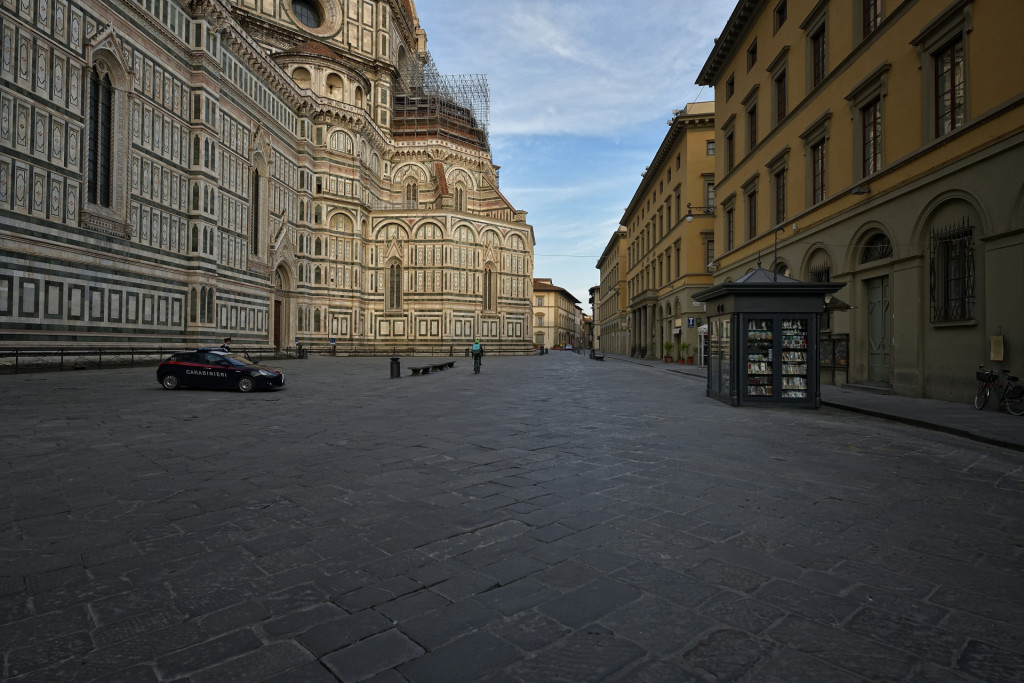
I have been working for 20 days on the letter of appointment from the Municipality of Florence to document daily life under the threat of Covid-19. After telling about the gradual emptying of the city, the garrisons by the army and law enforcement agencies in the symbolic places of Florence, the activities that still continue to work, I am focusing on what remains and, in particular, on those who provide of services driven solely by a spirit of solidarity.
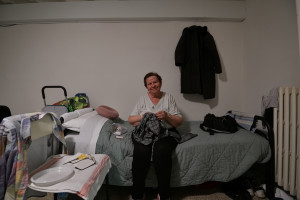 I am following the homeless whose home is the city streets. You can't ask them 'stayathome' because they don't have it. And then you see them around the city as Franco and Alessandro who are under the arcades of SS. Annunziata with the sleeping bag and a radio donated by one who passed by. In normal times their presence would have been mixed between people intent on shopping or among tourists who crowded the historic center of Florence; they were the so-called 'invisible'. Now, however, they are strong presences because they are the city streets. When the volunteer Elisabetta begins the free distribution of meals, the square comes alive and dozens of people in difficulty approach the counter set up outside. There are street artists like Luigi, who no longer has his audience; marginalized because ex-prisoners like Andrea to whom no one gives alms anymore; prostitutes like Carla, who lost their clients and then drug dealers, drug addicts, alcoholics or others to whom fortune has turned its back. It is thanks to these reception centers that they manage to live. The food is prepared and managed like a large company canteen. Marzio, one of the managers of the Florentine Caritas, tells me that the cooks also meet the needs of those who for special religious or health reasons need special meals. It is incredible how, although we live in emergency, the solidarity and humanity of certain associations does not fail.
I am following the homeless whose home is the city streets. You can't ask them 'stayathome' because they don't have it. And then you see them around the city as Franco and Alessandro who are under the arcades of SS. Annunziata with the sleeping bag and a radio donated by one who passed by. In normal times their presence would have been mixed between people intent on shopping or among tourists who crowded the historic center of Florence; they were the so-called 'invisible'. Now, however, they are strong presences because they are the city streets. When the volunteer Elisabetta begins the free distribution of meals, the square comes alive and dozens of people in difficulty approach the counter set up outside. There are street artists like Luigi, who no longer has his audience; marginalized because ex-prisoners like Andrea to whom no one gives alms anymore; prostitutes like Carla, who lost their clients and then drug dealers, drug addicts, alcoholics or others to whom fortune has turned its back. It is thanks to these reception centers that they manage to live. The food is prepared and managed like a large company canteen. Marzio, one of the managers of the Florentine Caritas, tells me that the cooks also meet the needs of those who for special religious or health reasons need special meals. It is incredible how, although we live in emergency, the solidarity and humanity of certain associations does not fail.
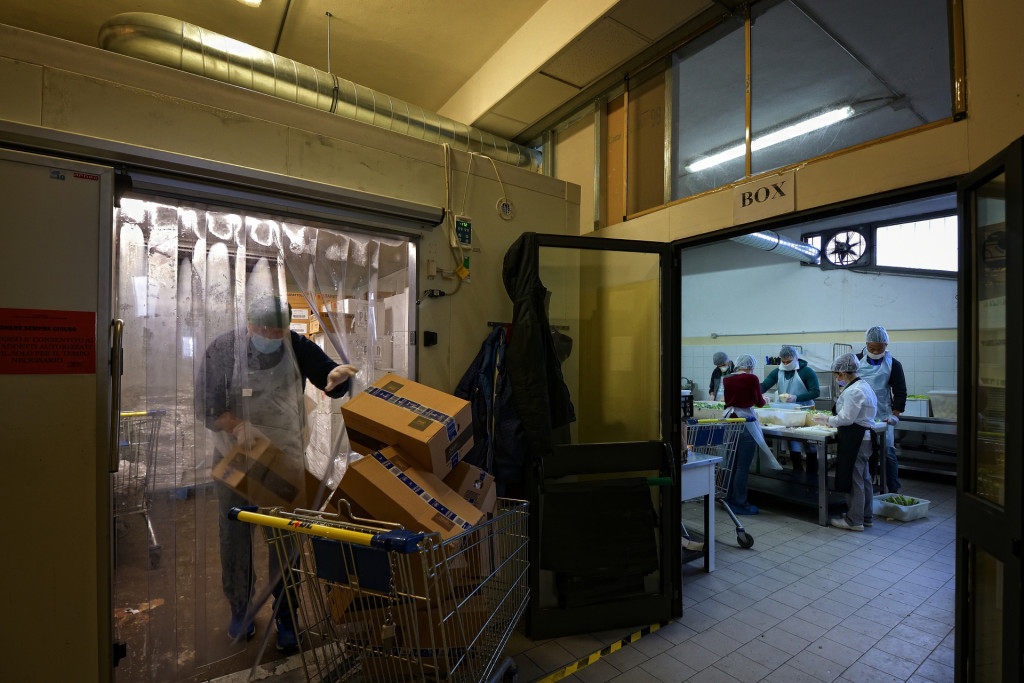
And then there is the Civil Protection that is facing a different emergency in its methods compared to those that normally happen. Luca, one of the managers of the Florentine section, told me that in the management of an earthquake, for example, we try to create rooms to create community and sharing; from the psychological point of view, in fact, it is important to create spaces where to be together to overcome the trauma suffered even with the strength of others. Here, however, the opposite must be done, it must be isolated. Hence a field was born, set up in three days in a large parking lot adjacent to Peretola airport, where individual housing units are positioned with a bed inside, a desk - on which a novel is nicely left -, the bathroom with shower, air conditioning and heating. The hydraulic work to manage the discharges was incredible and the choice of a place where there were already biological pits nearby was a winner.
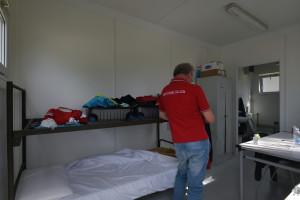
Un infermiere della Croce Rossa tornato dalla zona 'calda' di Bergamo che si messo in isolamento volontario per due settimane a scopo precauzionale.
Those in voluntary isolation, such as two operators of the Red Cross who have been returning to Bergamo for ten days, and those who do not have a structure that can accommodate him as prisoners awaiting trial, spend the quarantine in this field.
It is always thanks to the tireless work of the volunteers that the Civil Protection delivers meals to the homes of those who cannot go out because they are positive for the crown swab virus, but who do not require hospitalization. The protocol prevents direct contact with the beneficiaries and therefore meals are left in the elevators of the condominiums for families who live on the upper floors or left on a table or a large basket in front of the entrance door.
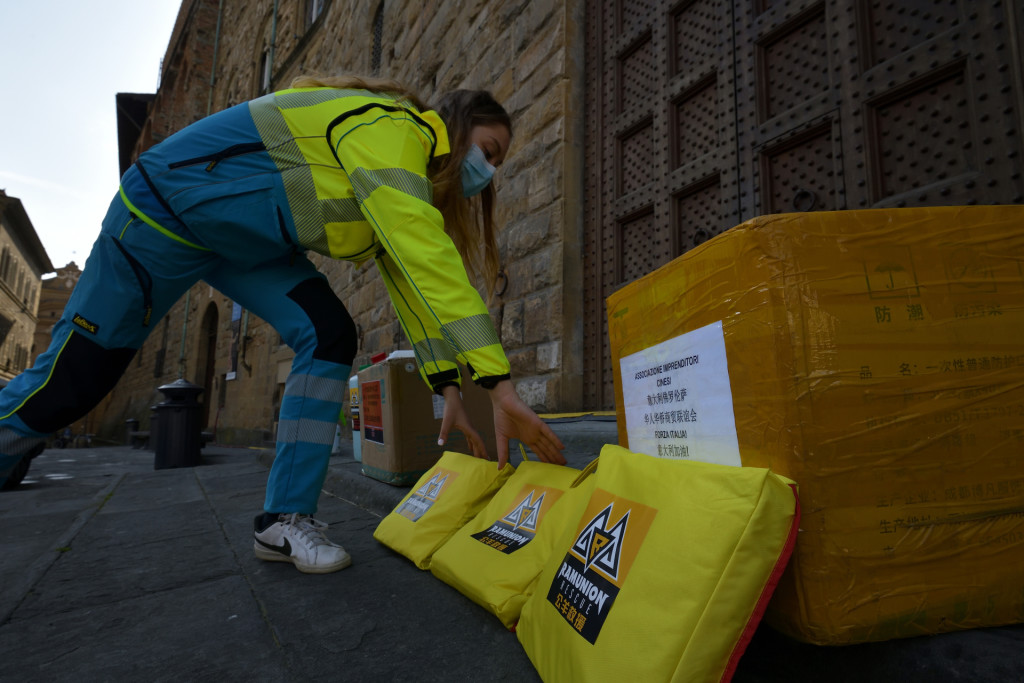
Volunteers, silent angels who make their time and health available to others. I have been following them for some time now and, although tired and tried, I have always seen them smiling and ready to respond to requests even in the middle of the night.
To them goes my deep respect and my immense gratitude.
Edoardo Agresti
(Editor's note: Edoardo has always been one of the most empathetic members of Shoot4Change. Knowing him on the street, risking firsthand to tell us about the wonderful work of the angels, silence imposes gratitude and respect on us. Thanks Edoardo, for what you do and how you tell these stories)
PHOTO GALLERY
-
0
-
0Shares


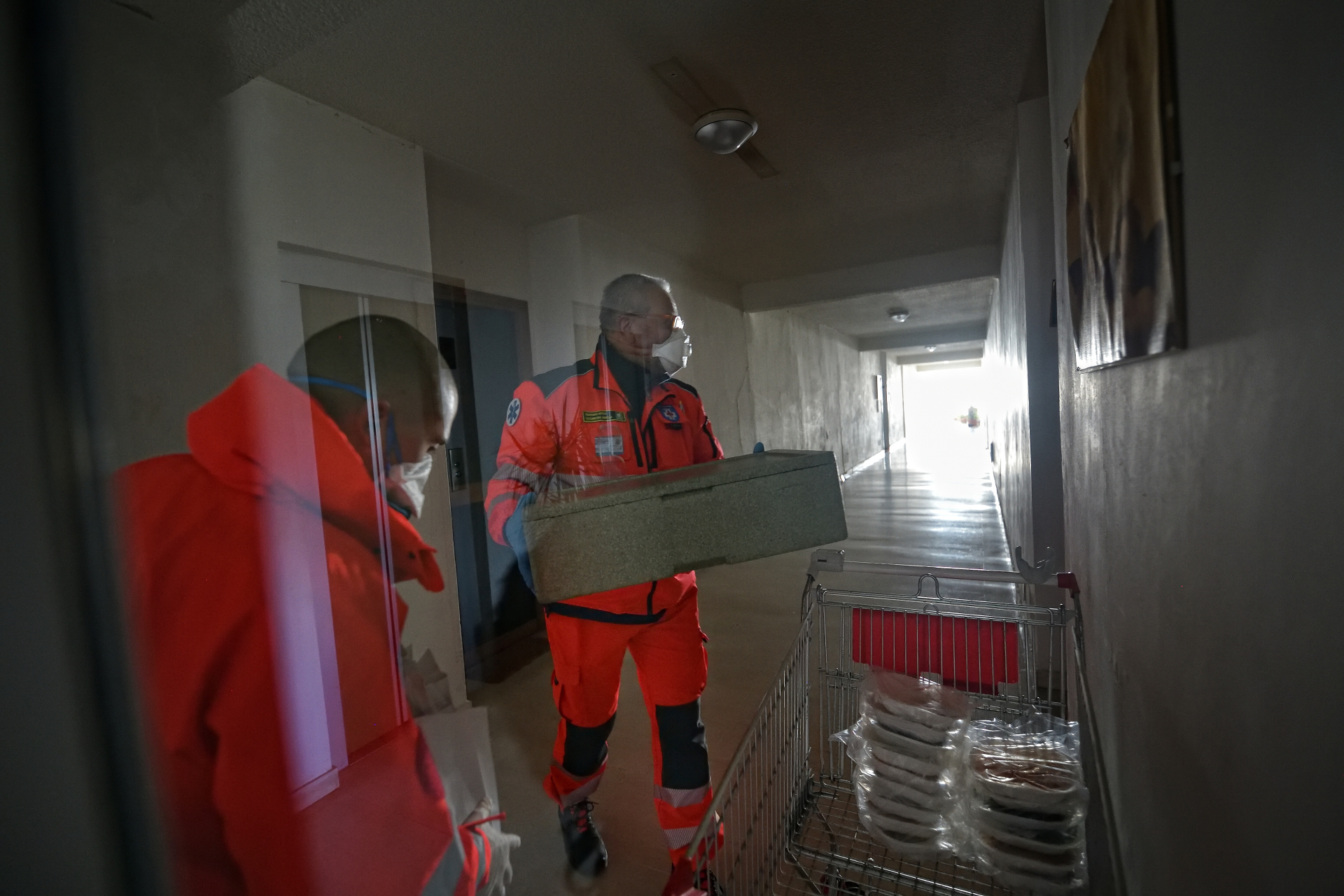
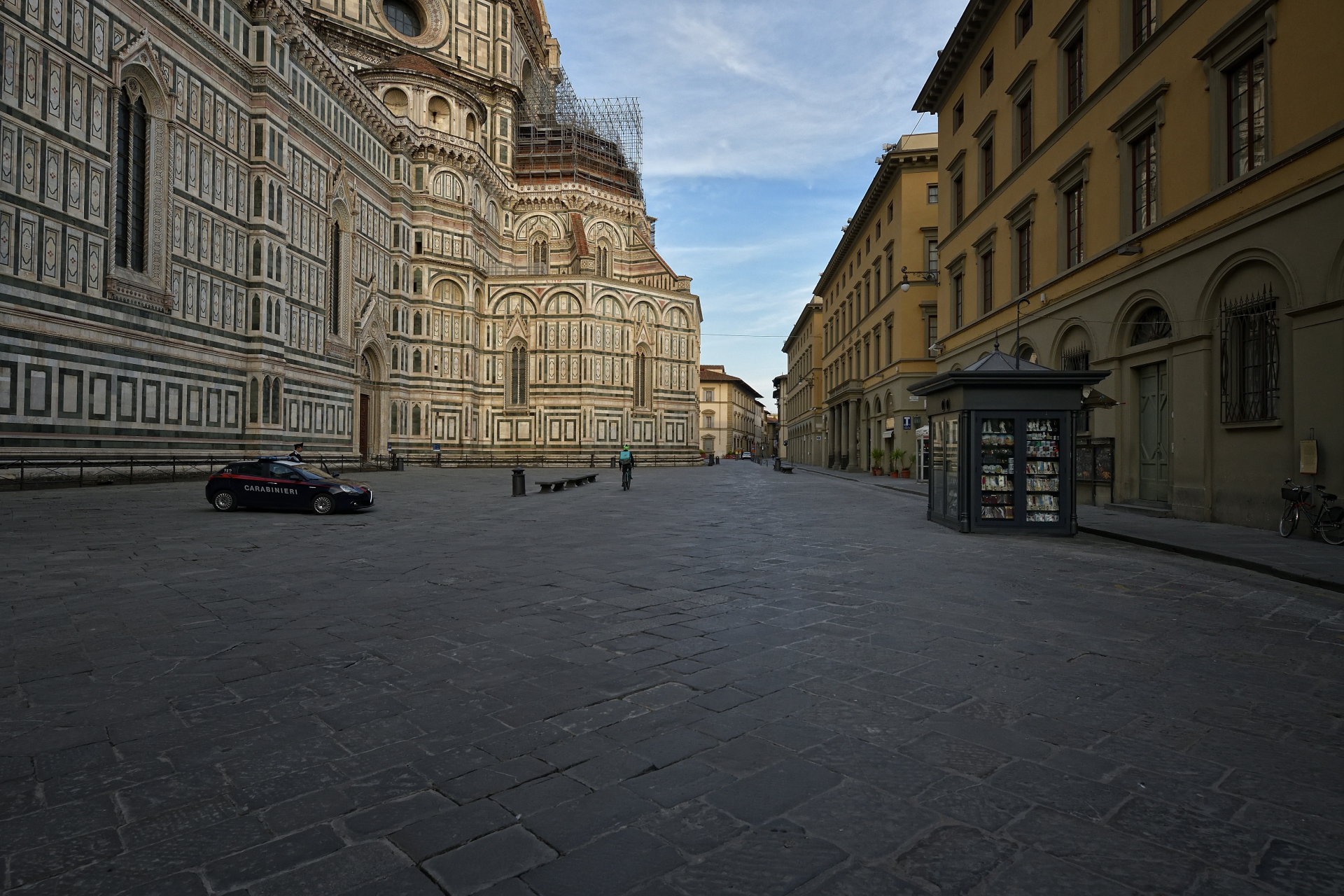
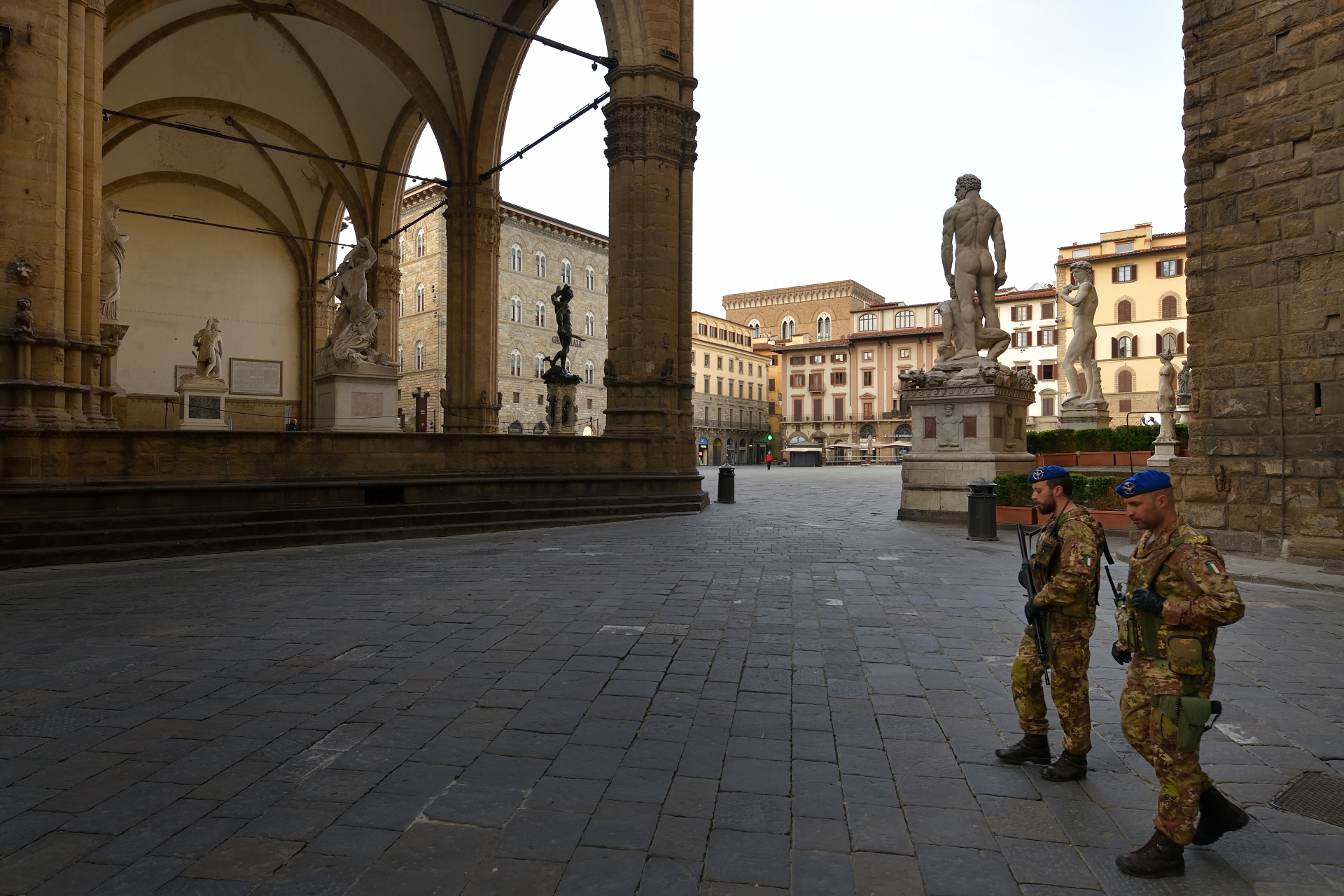
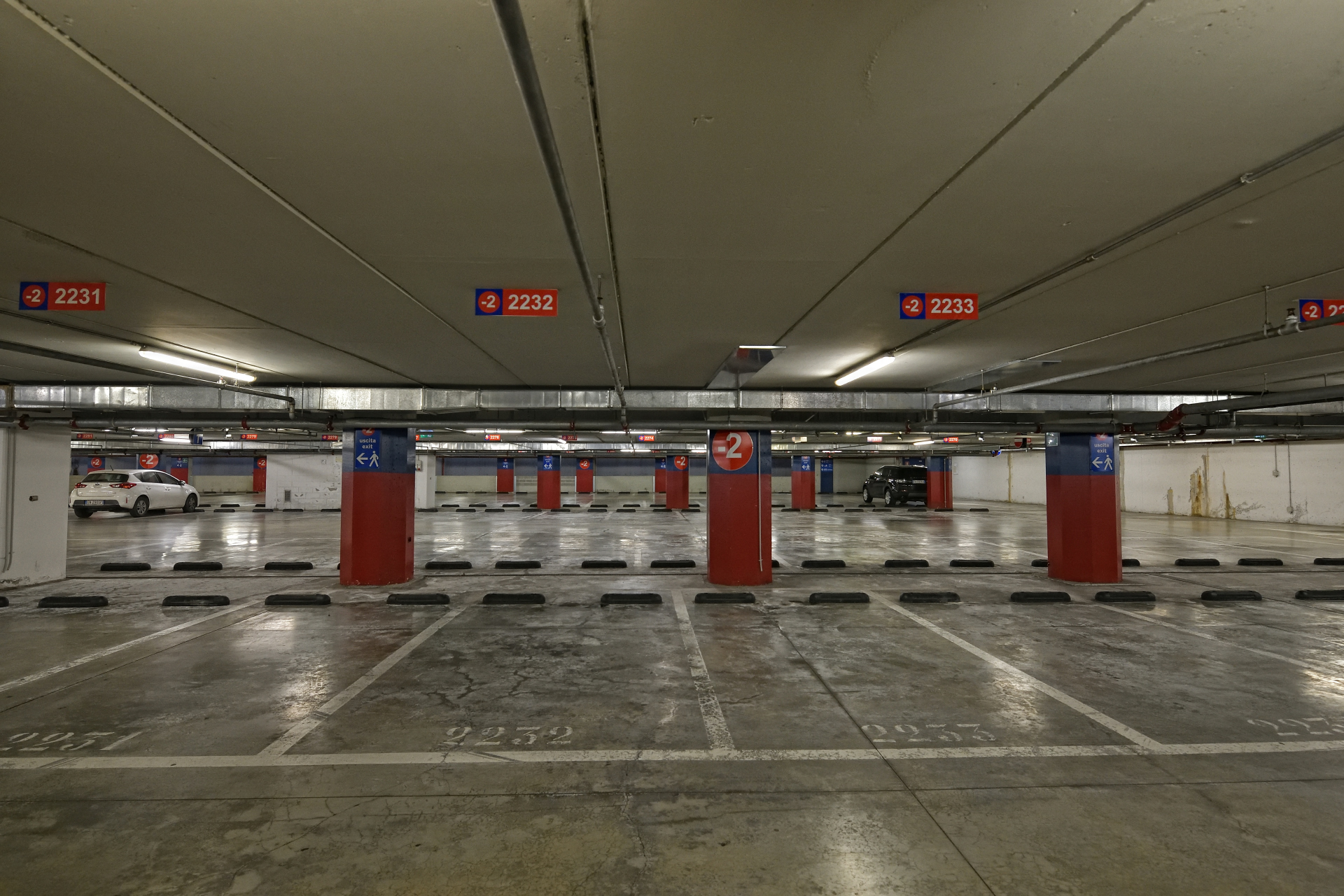
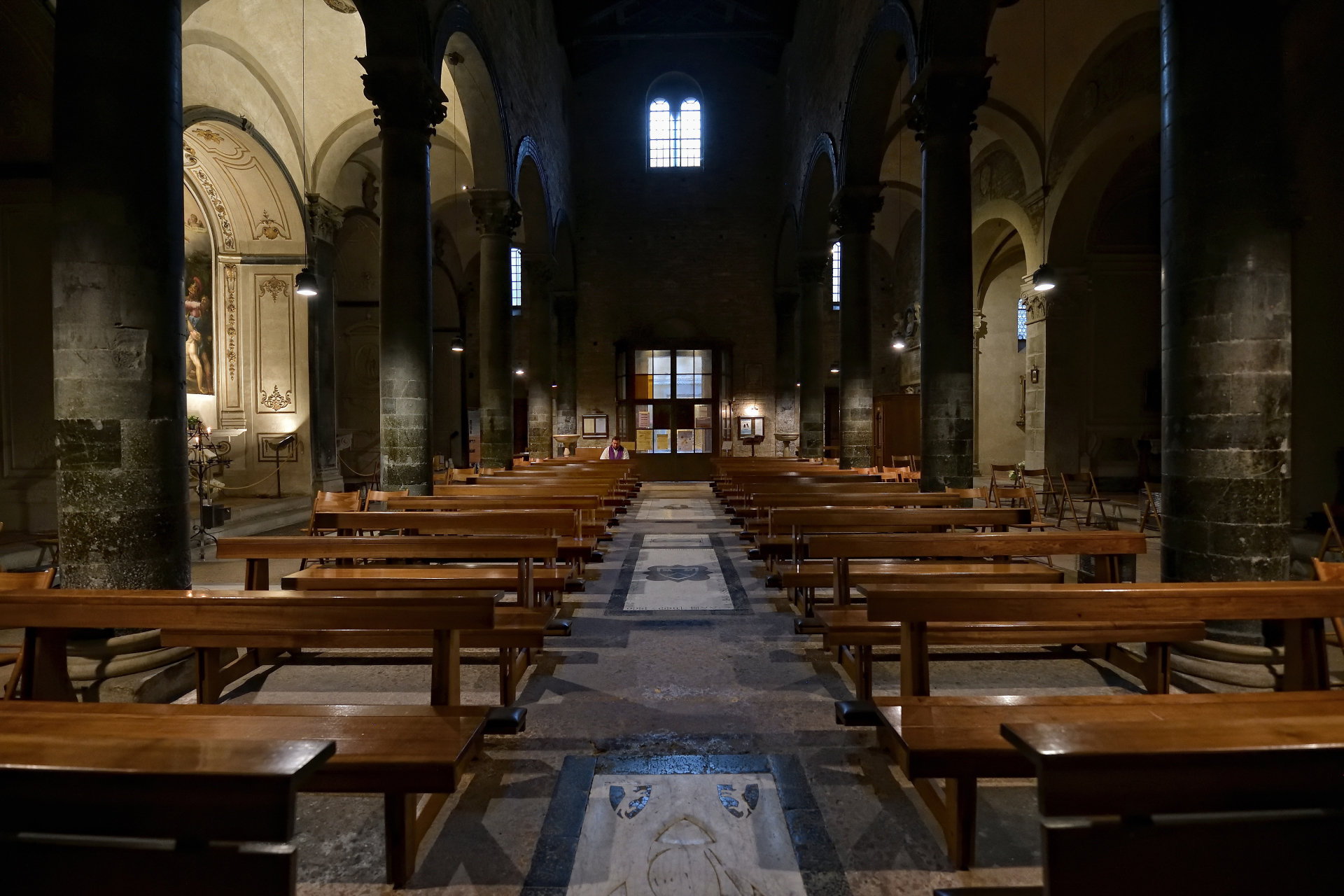
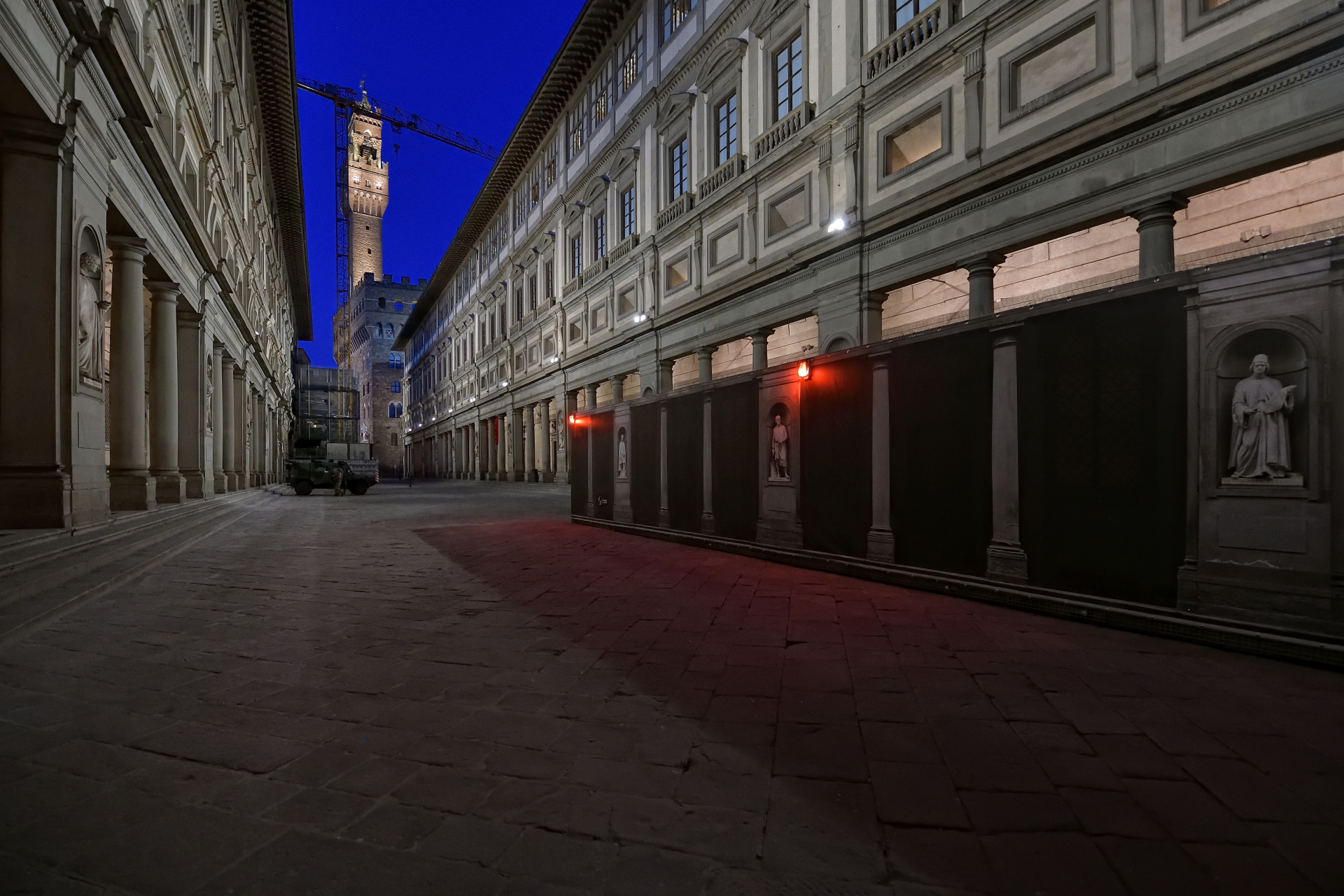
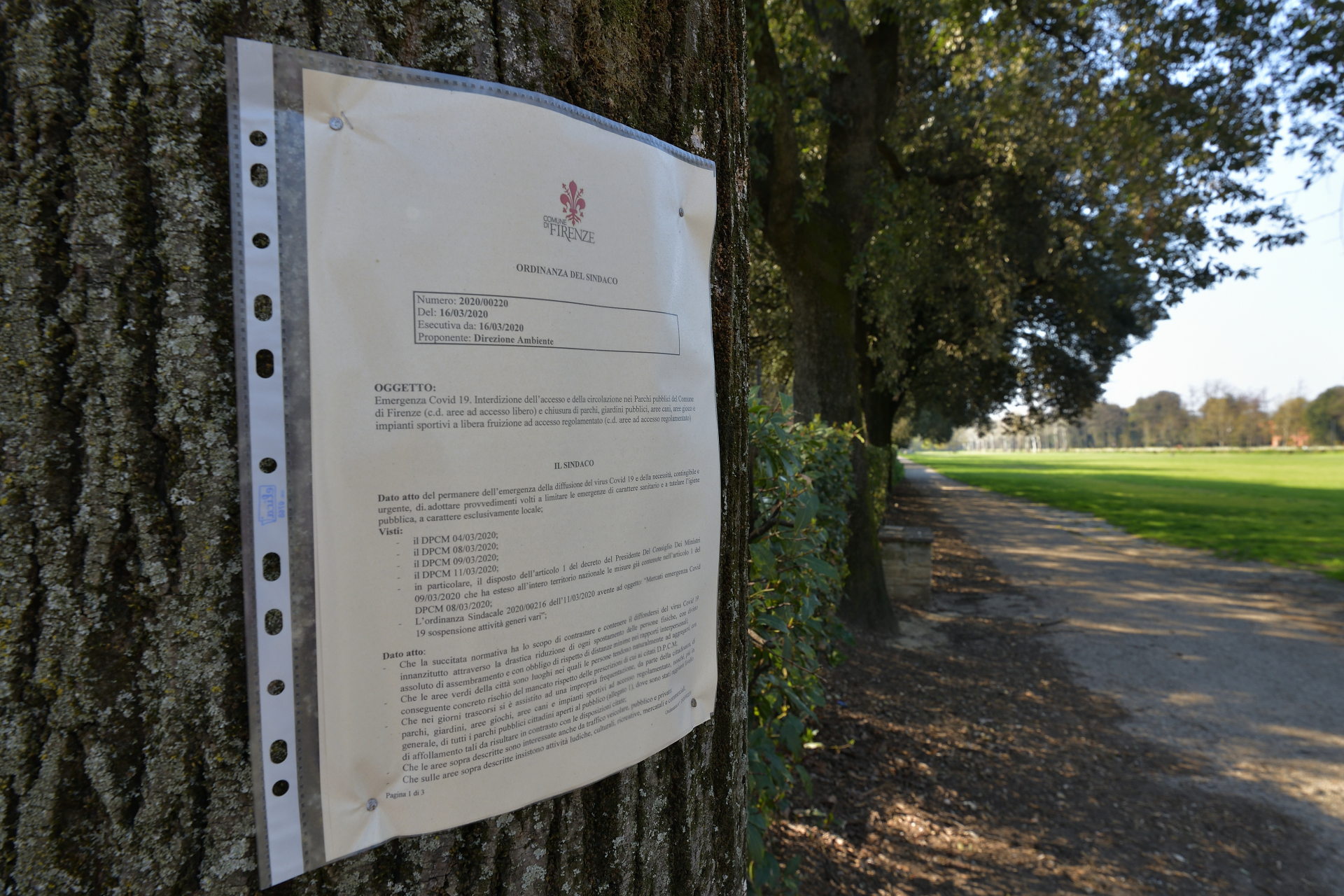
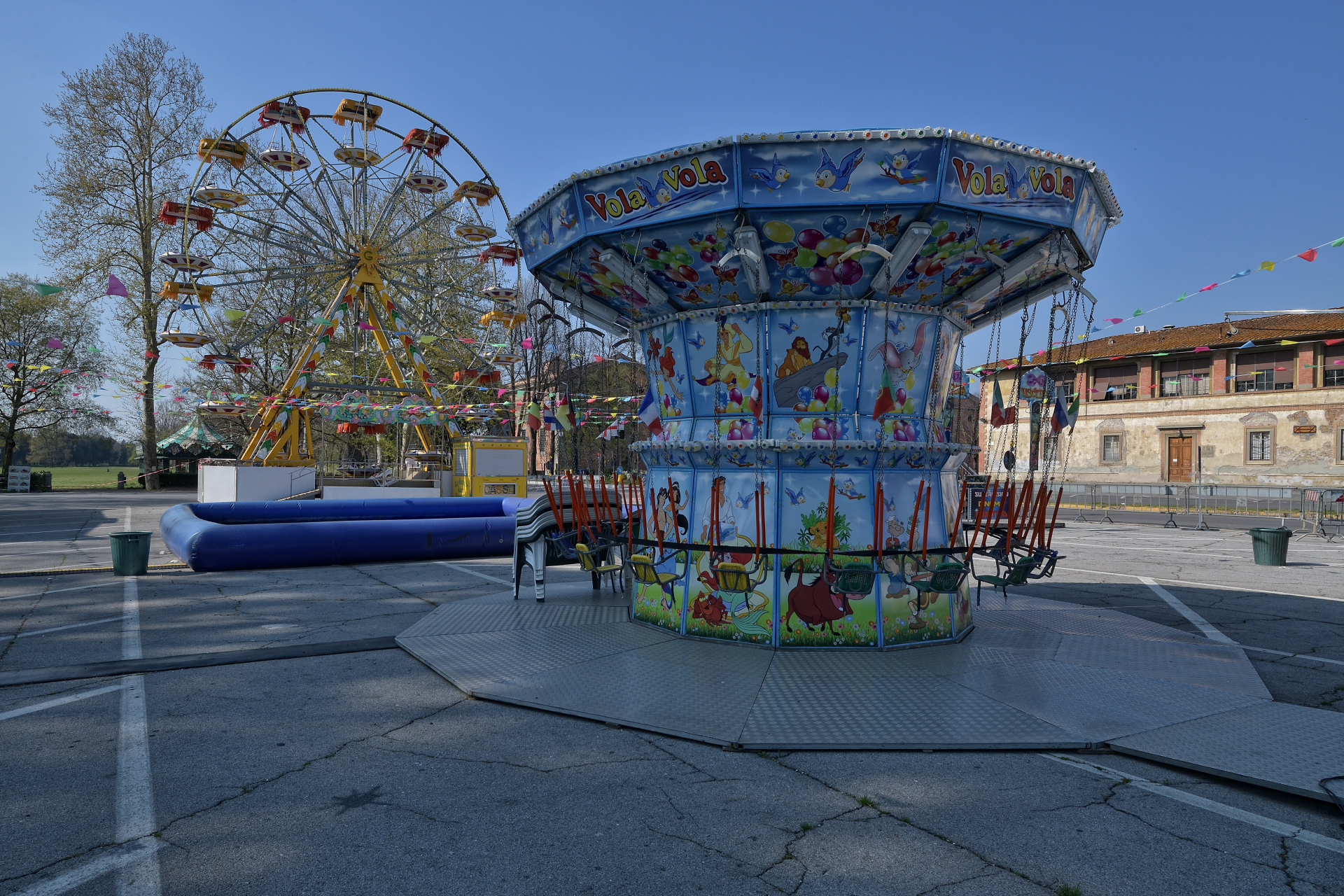
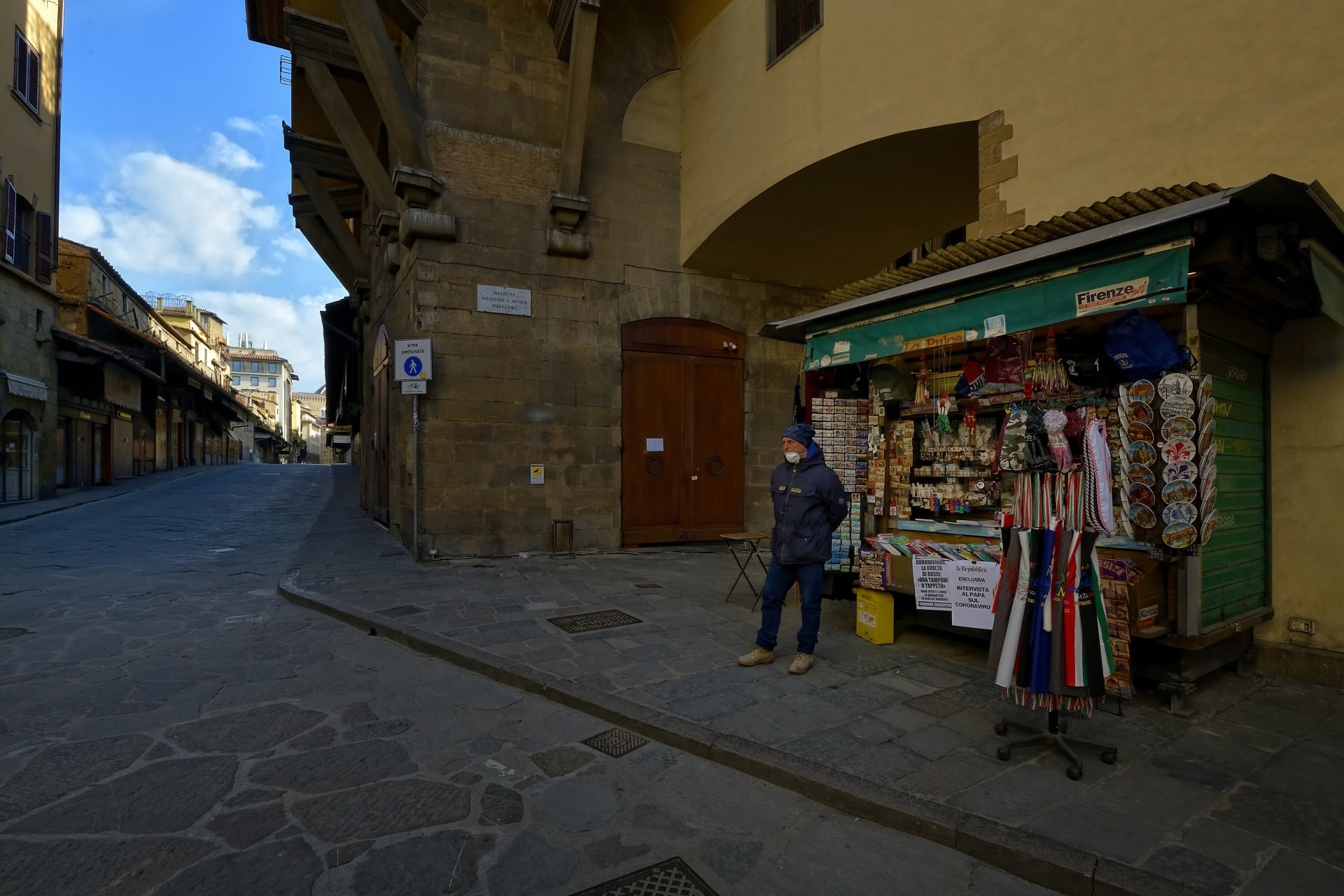
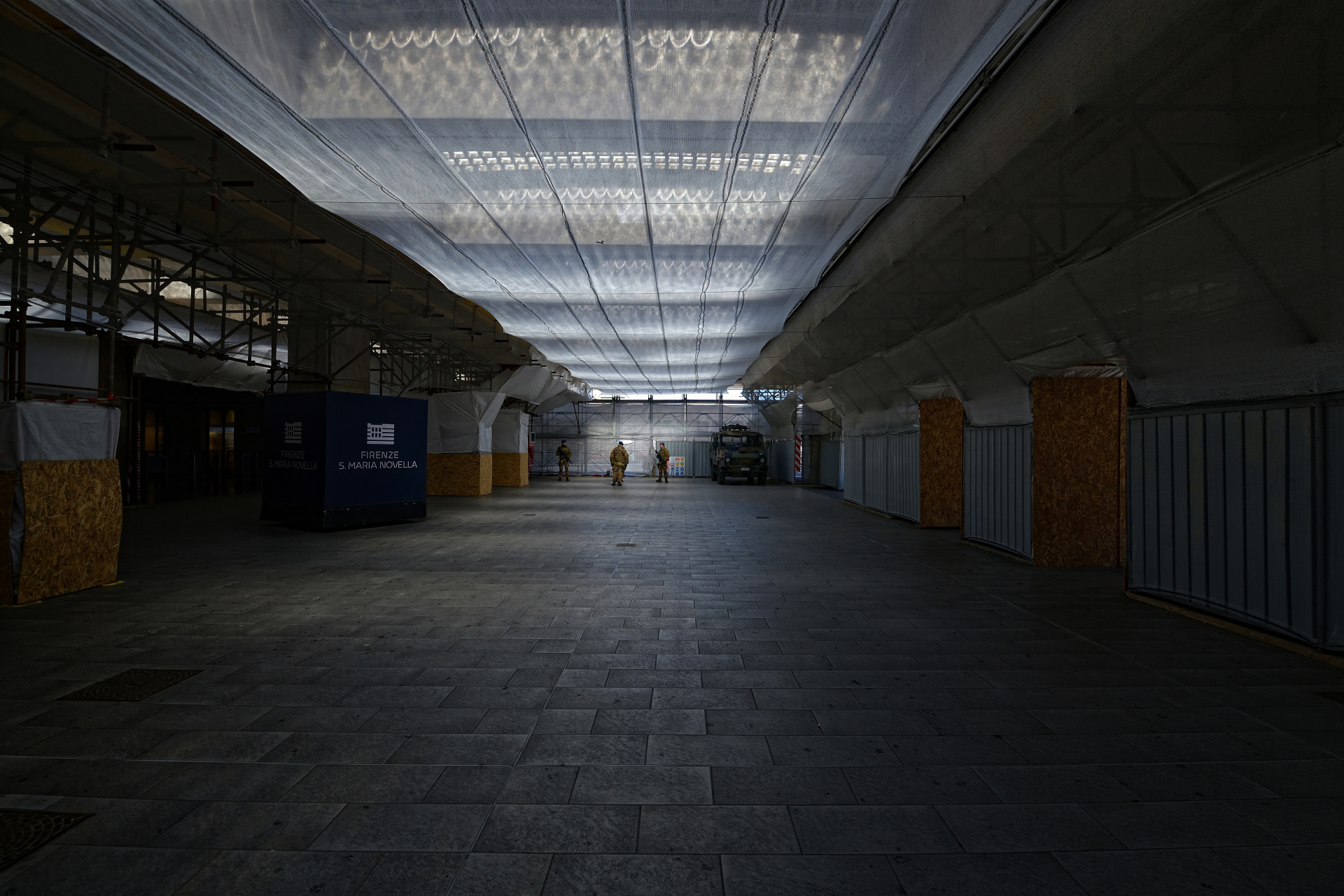
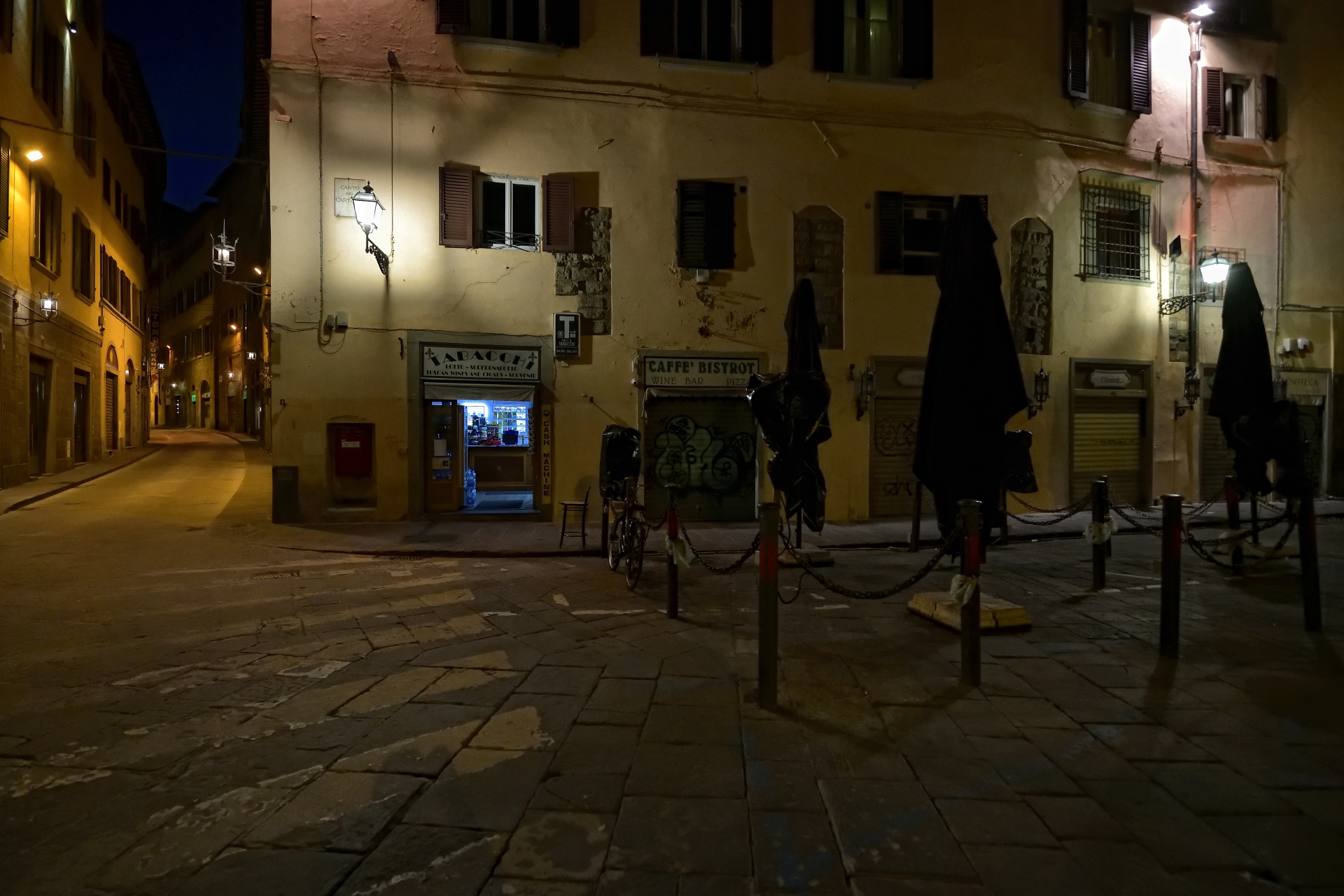
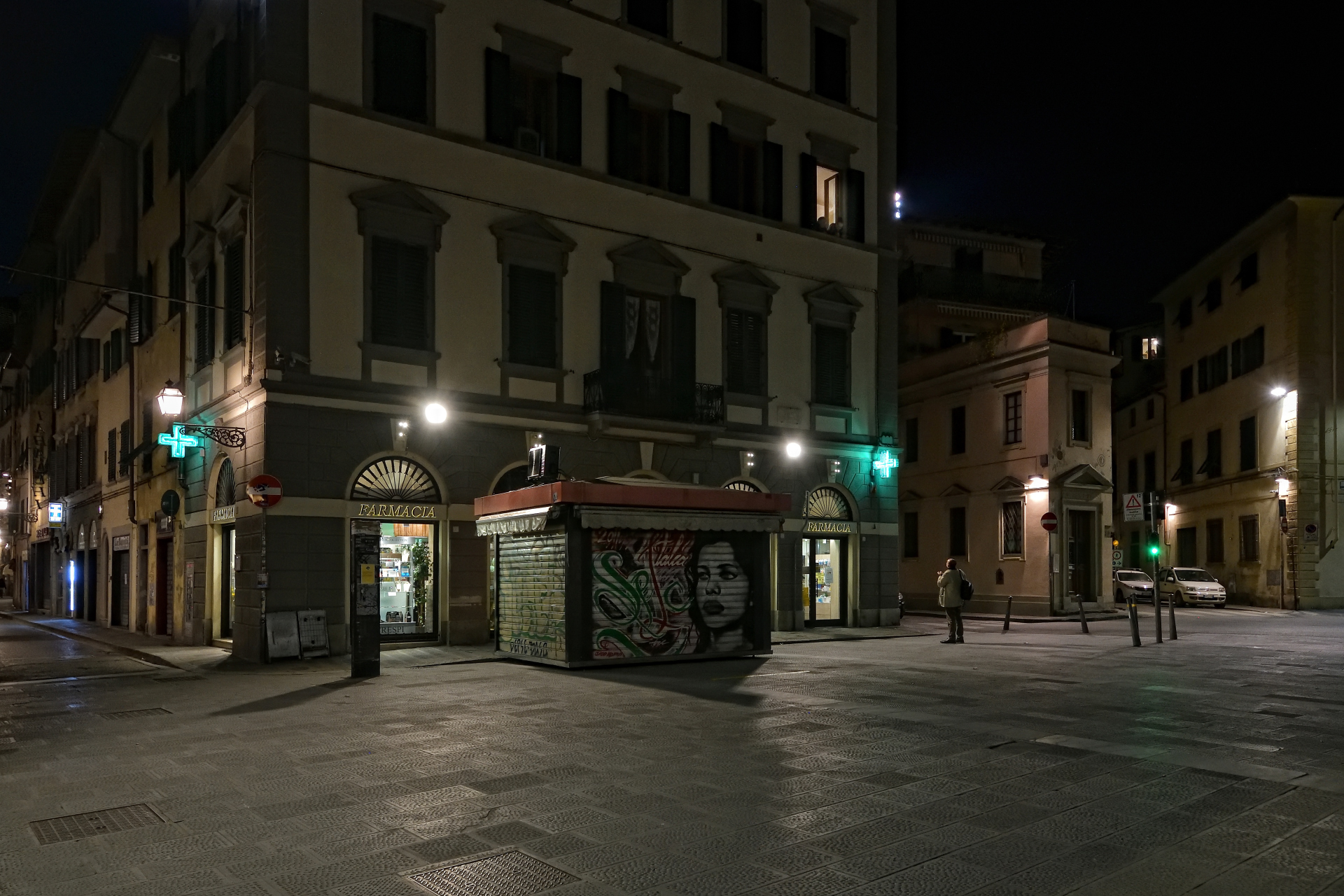
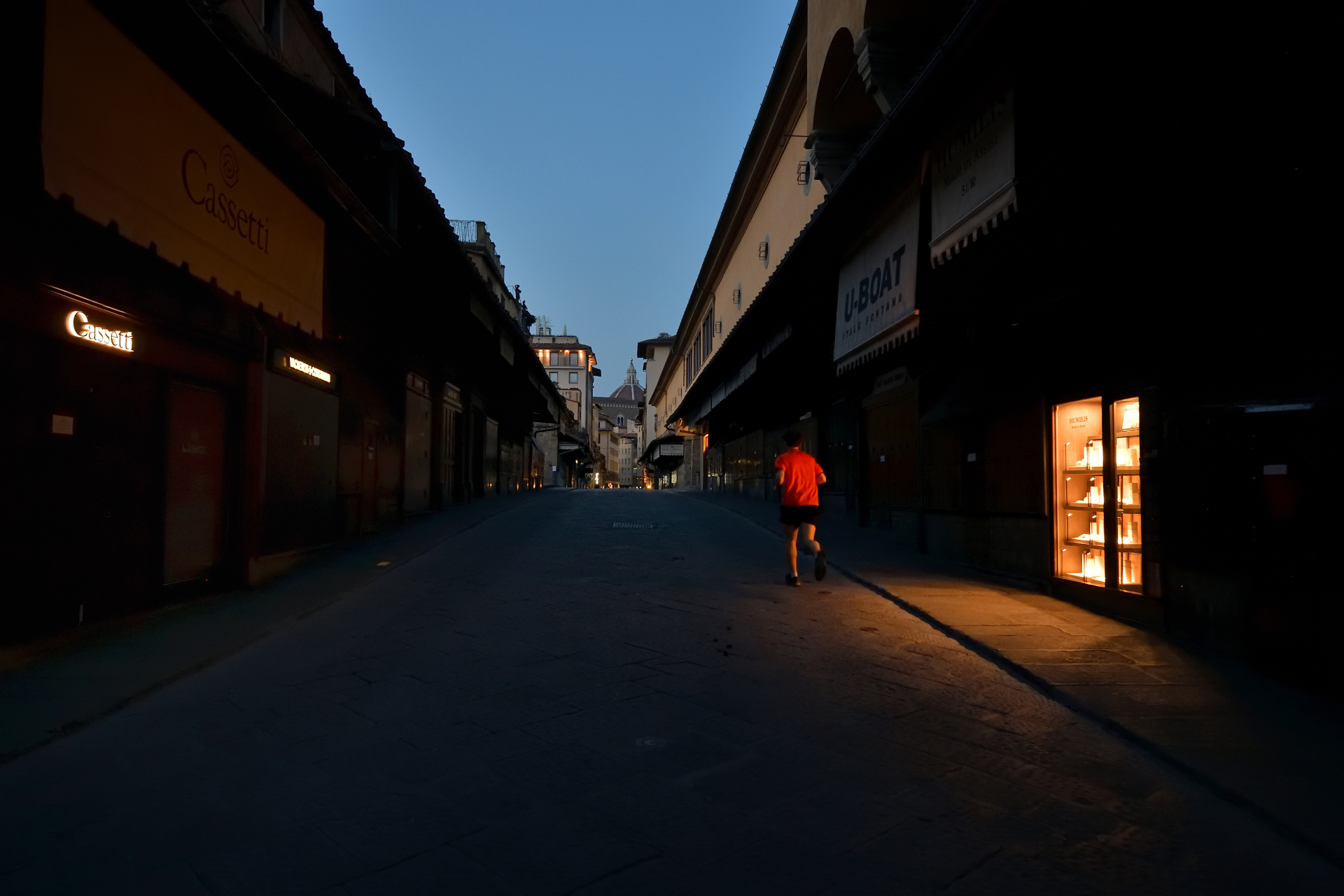
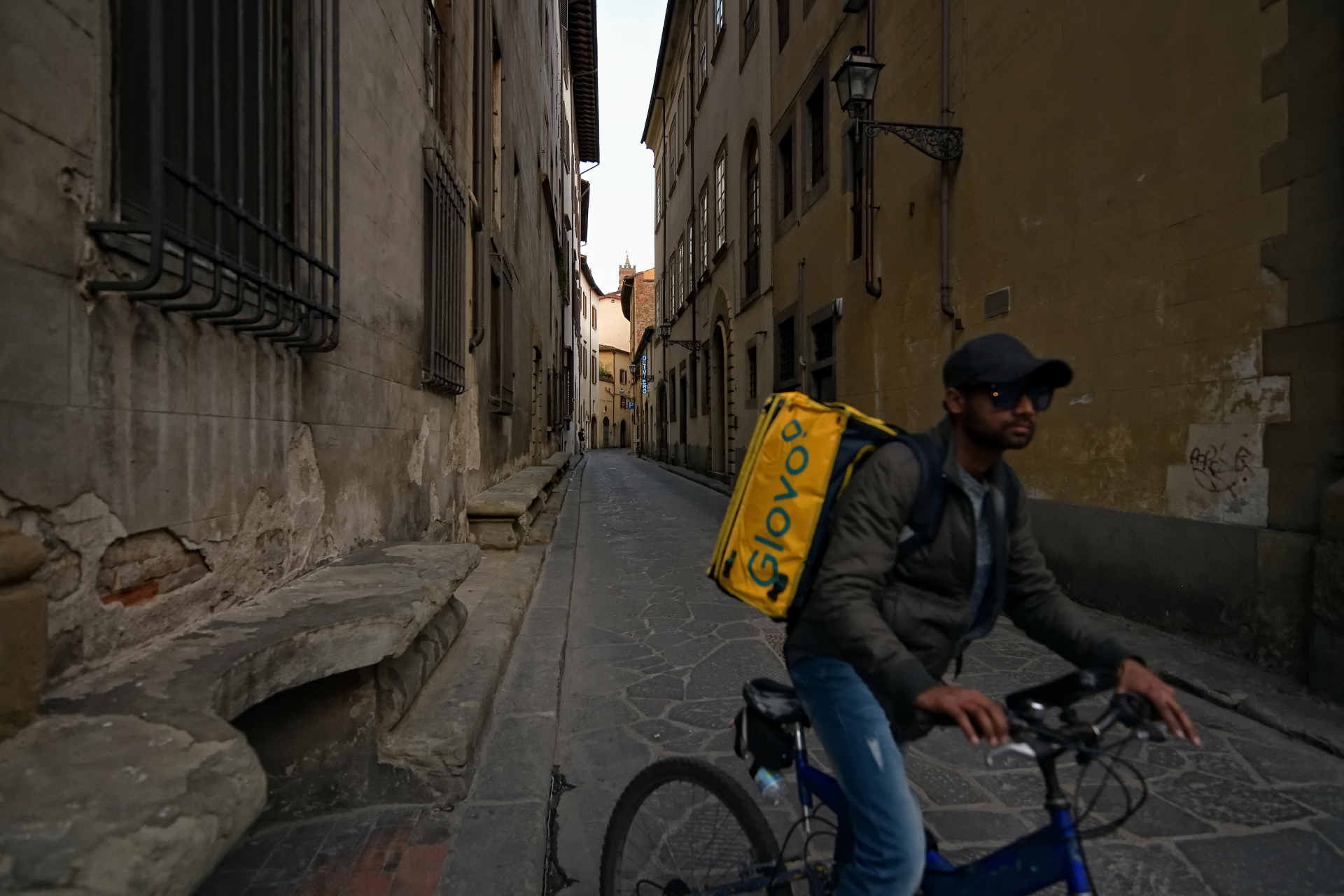
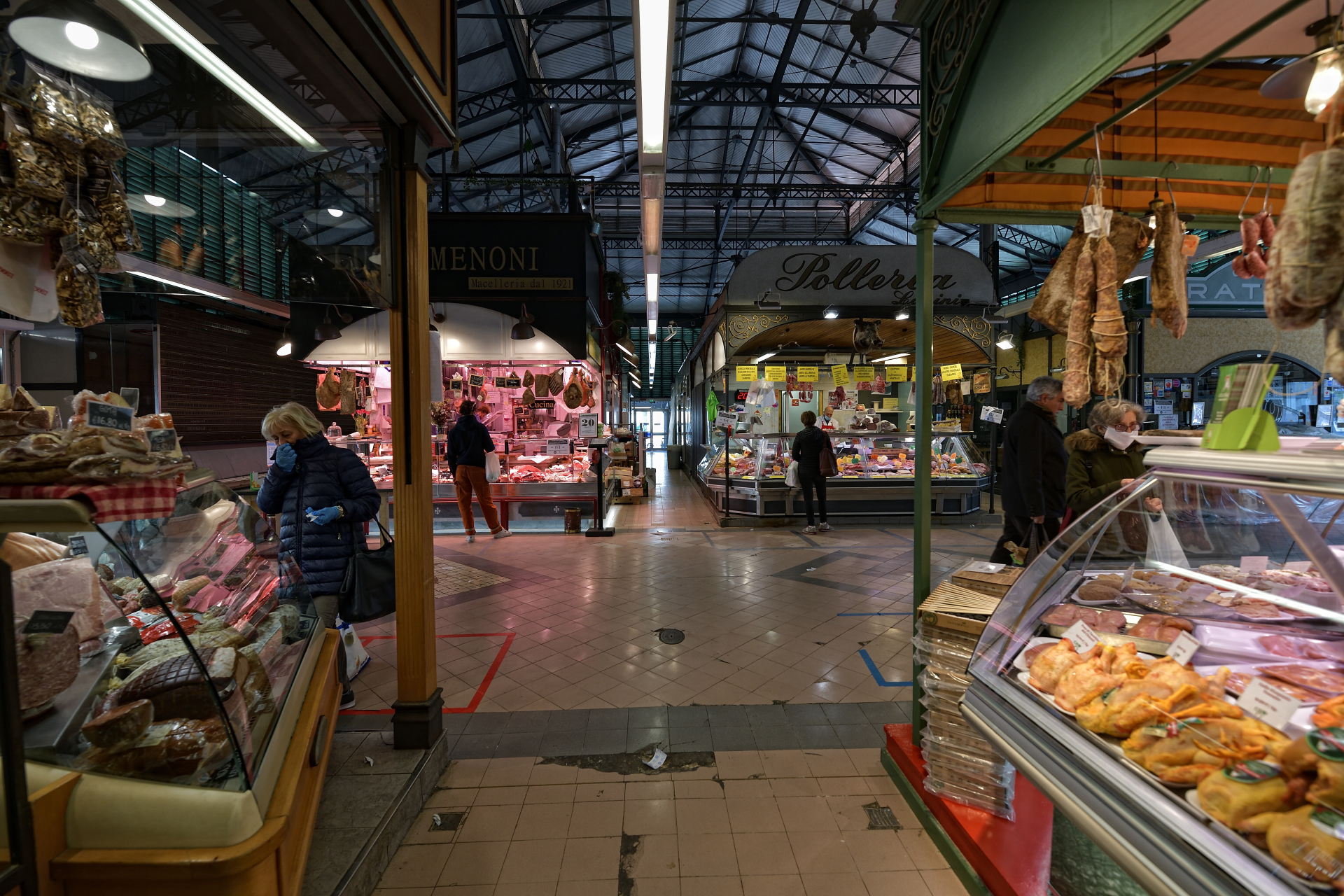
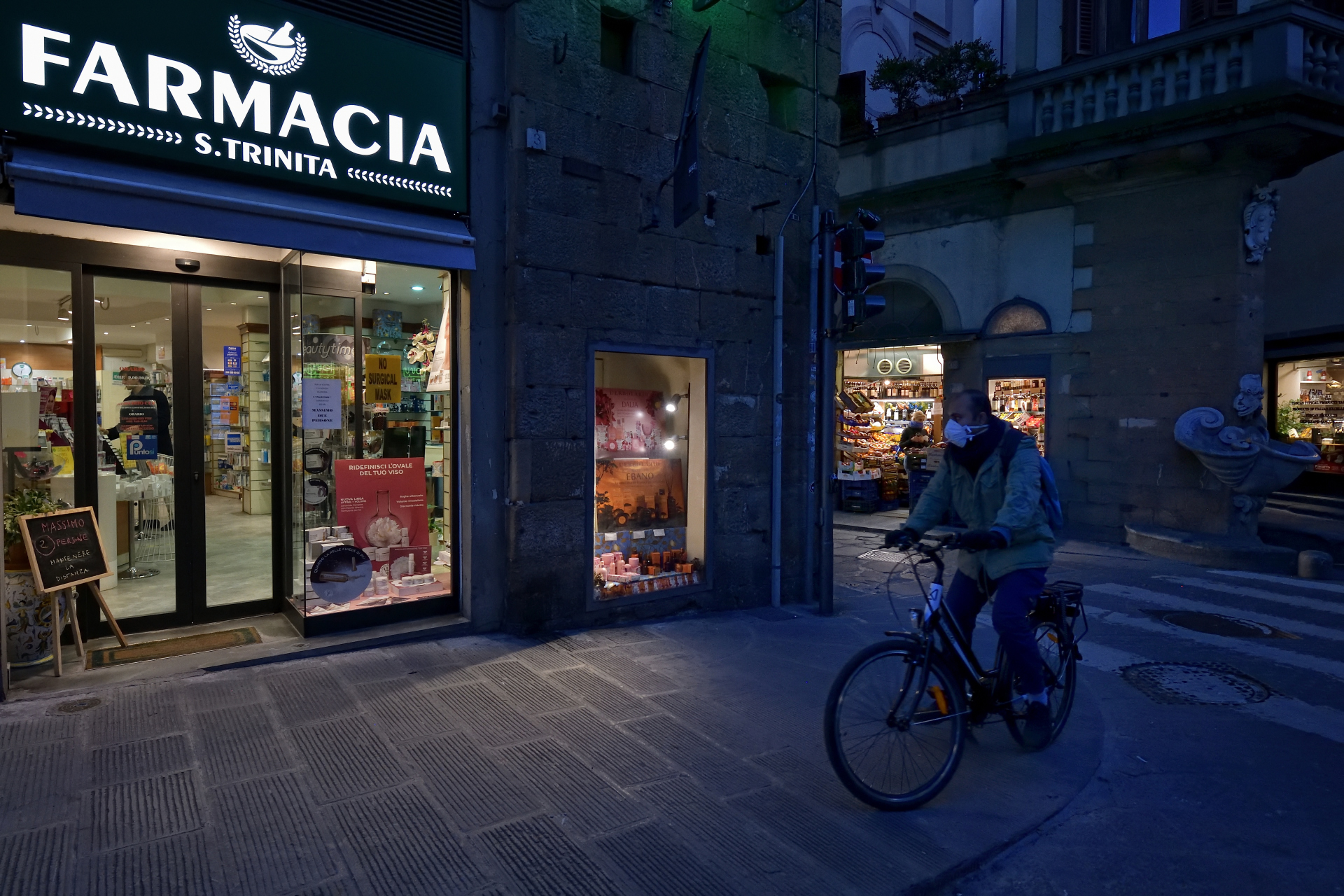
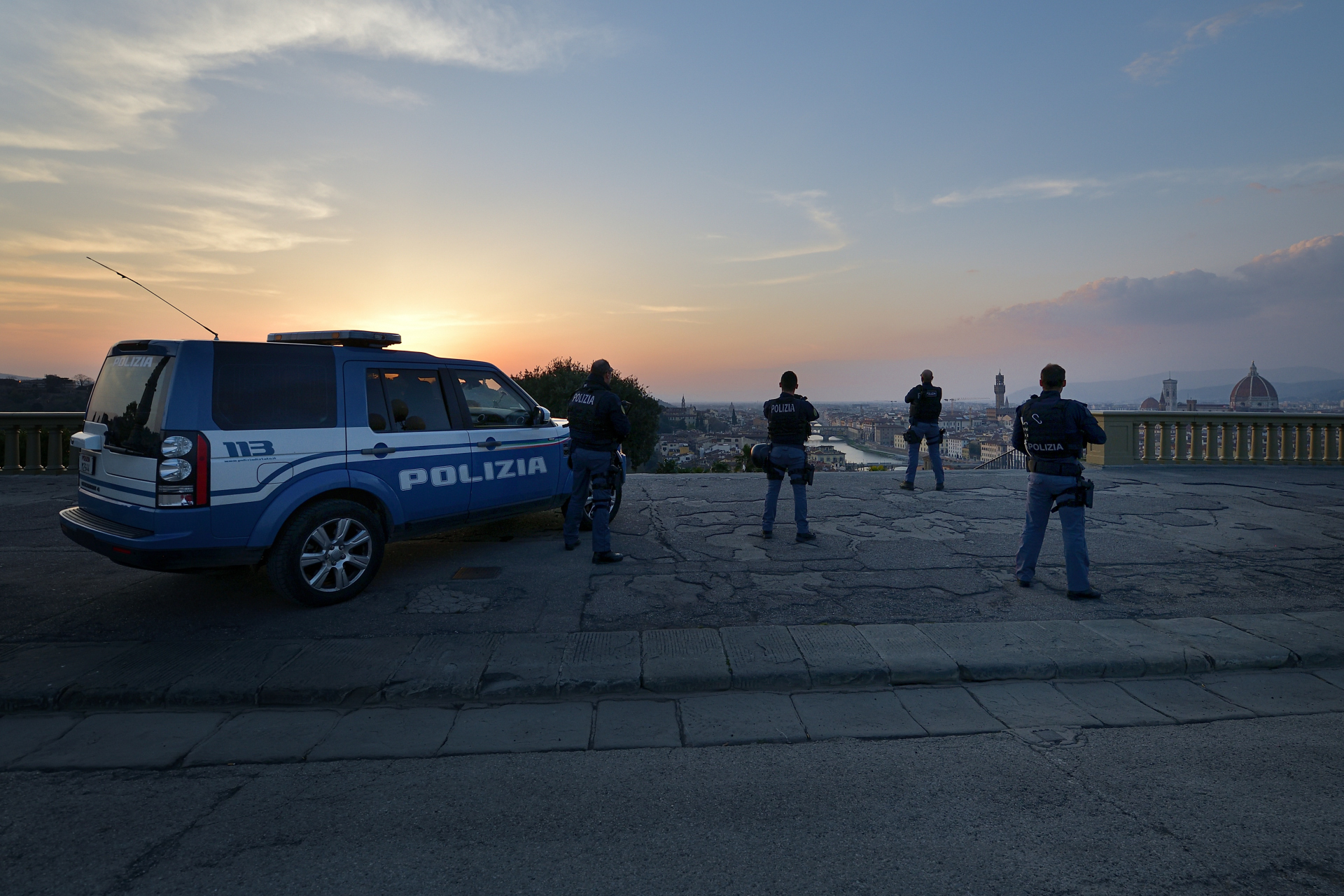
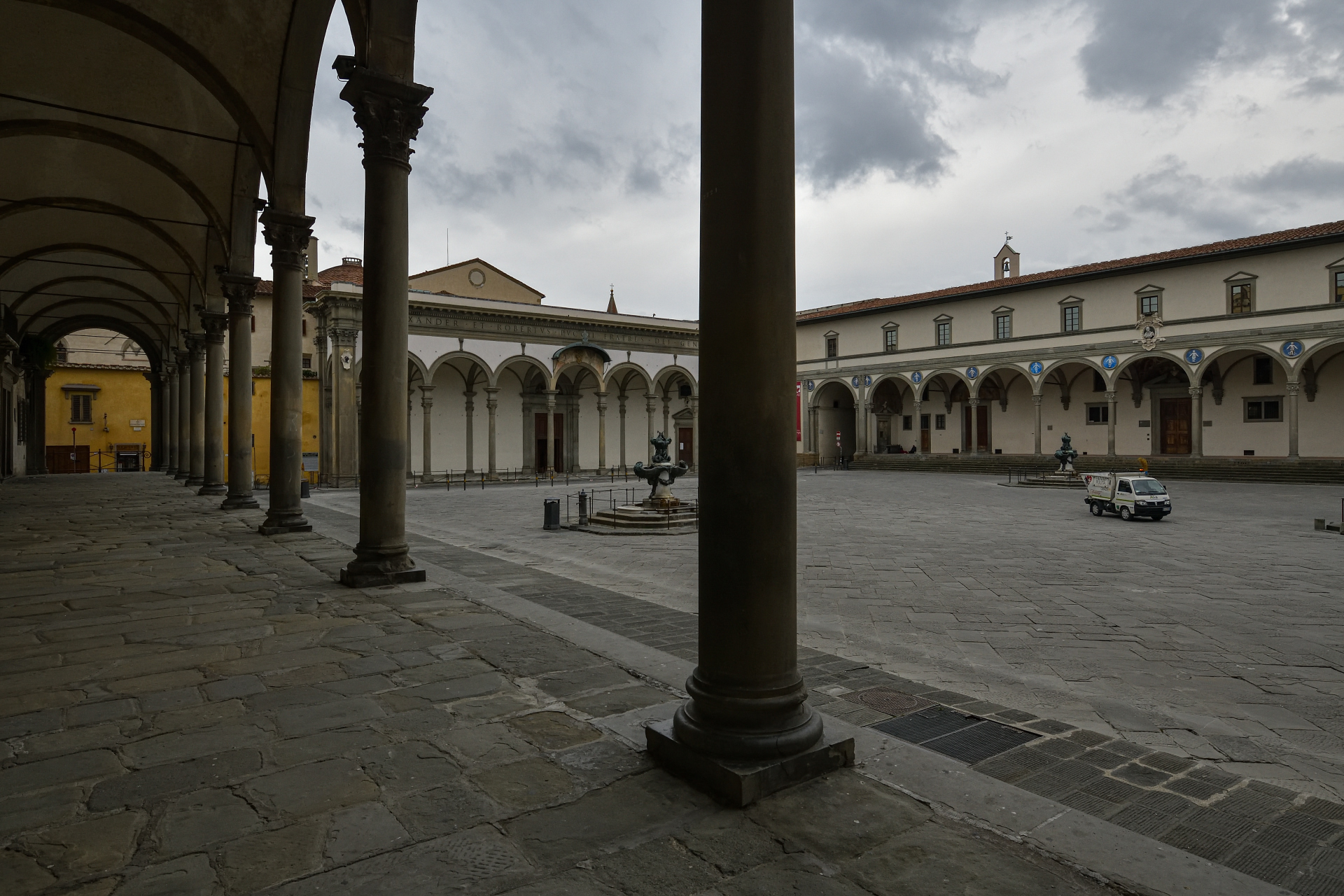
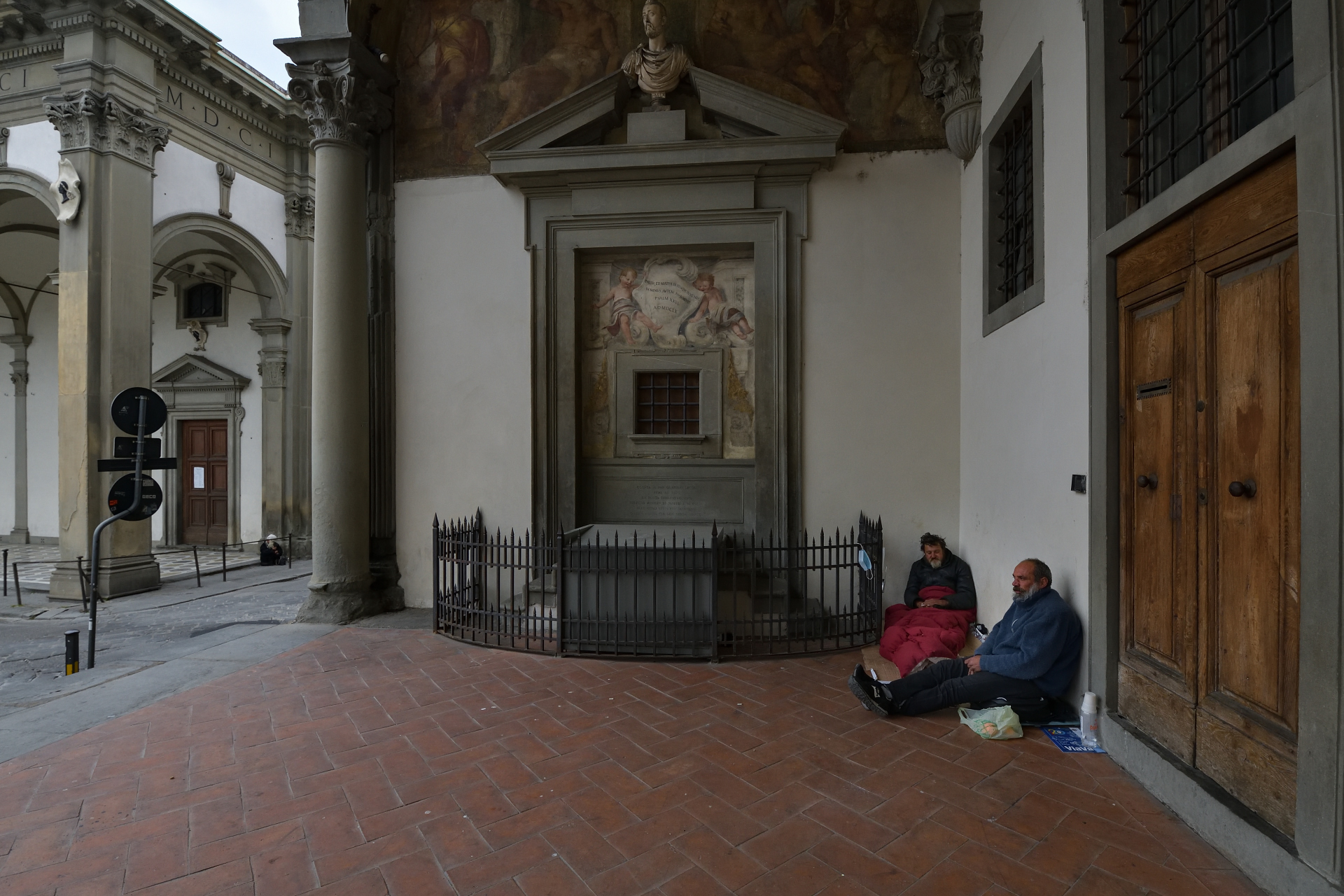
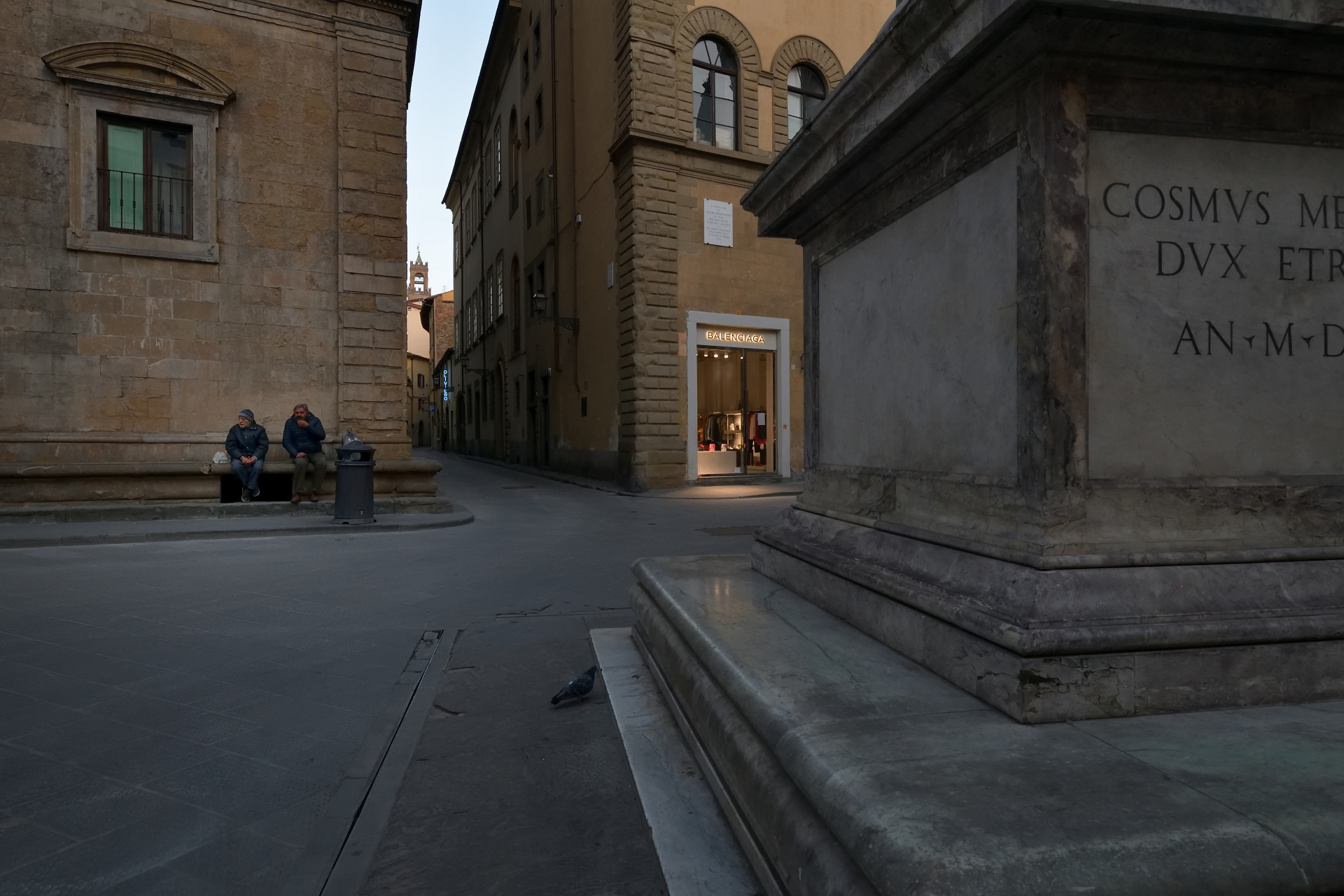
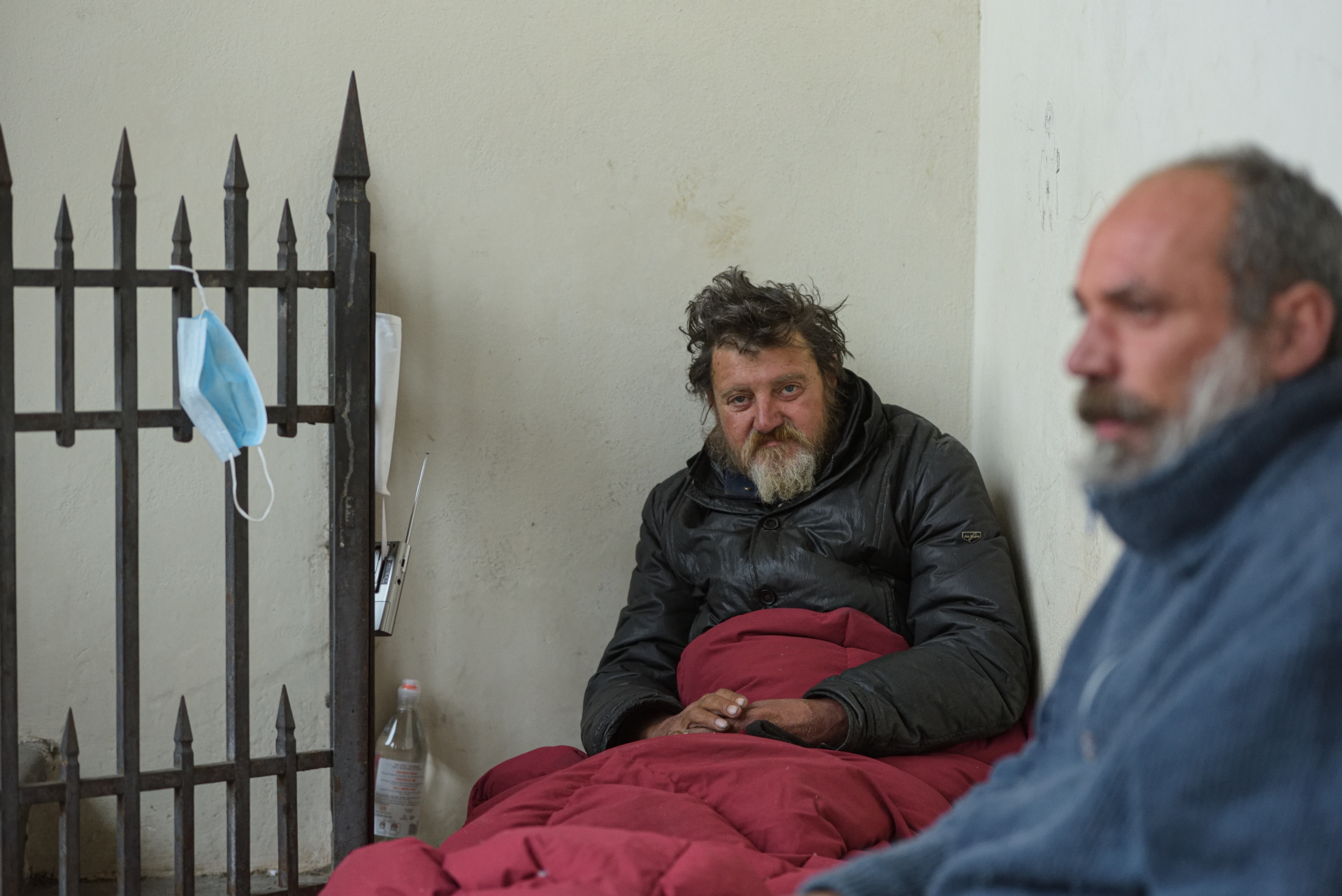
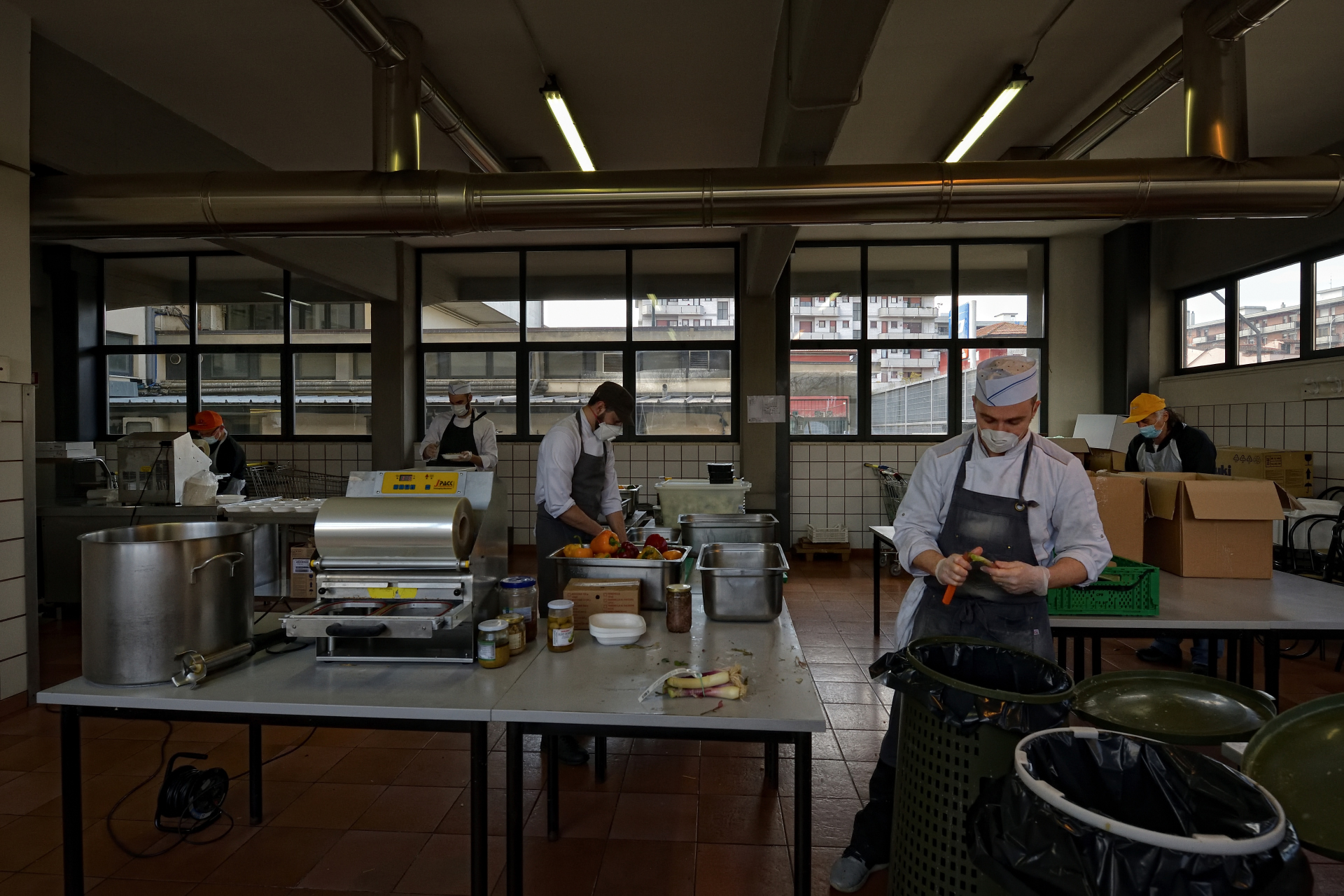
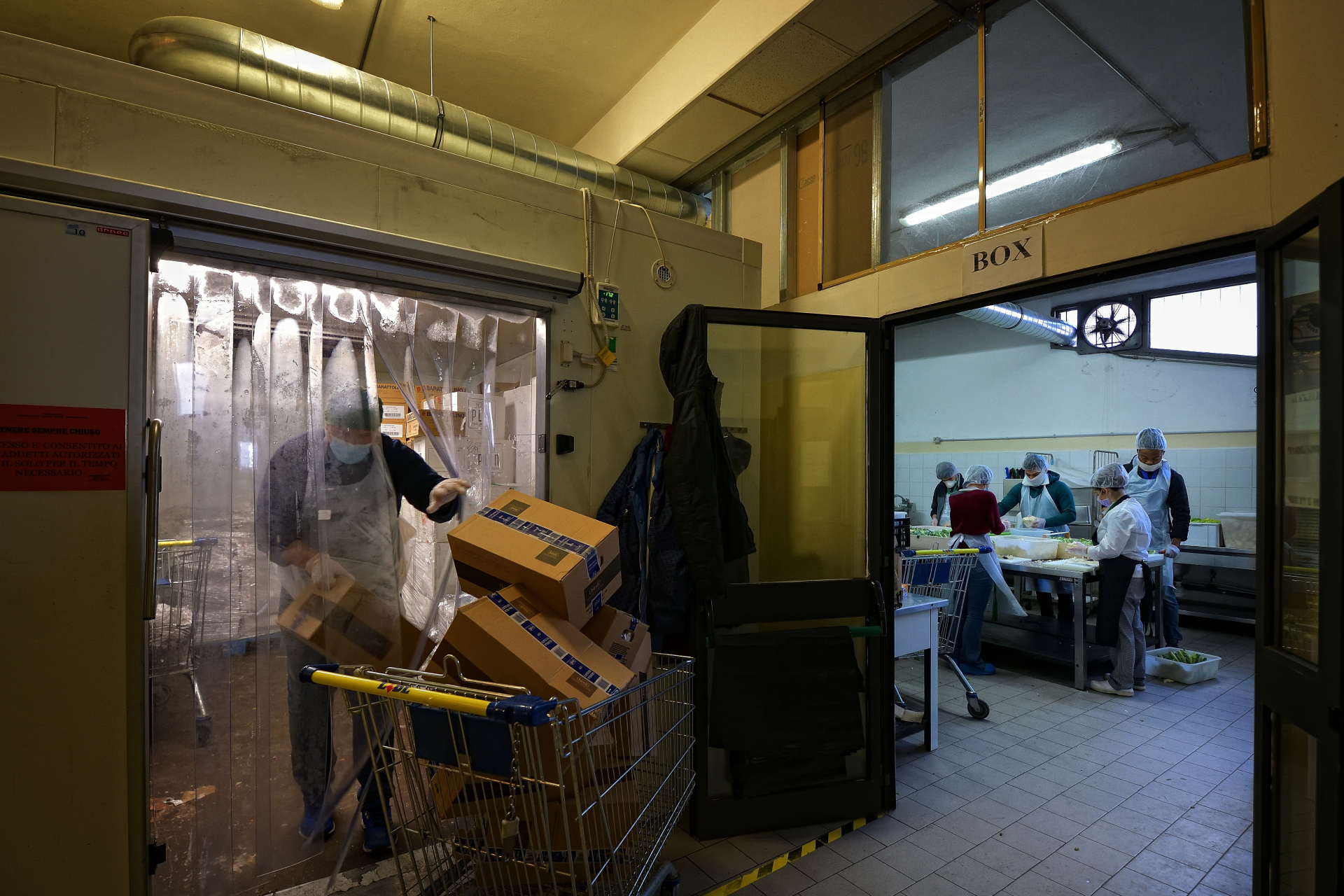
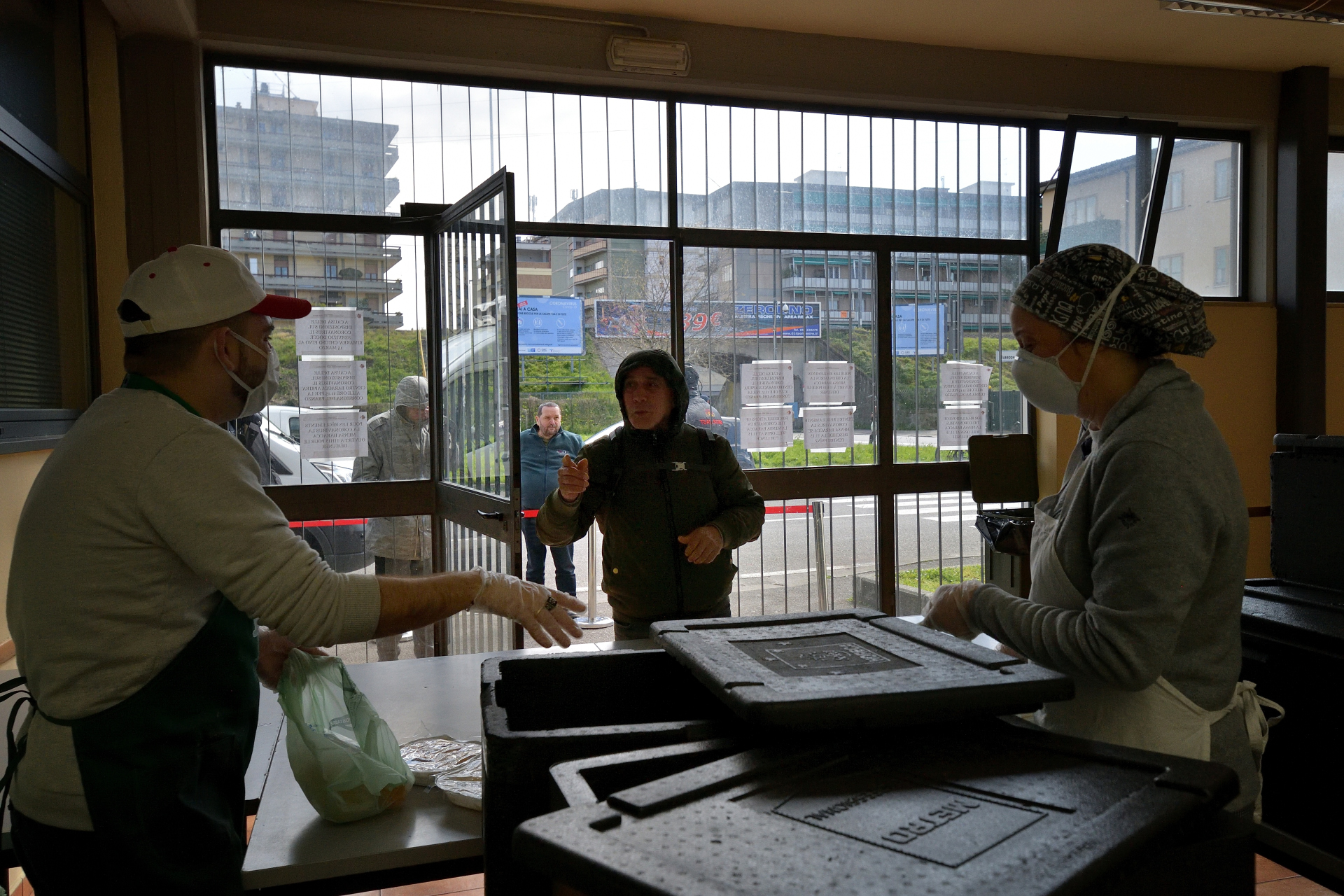
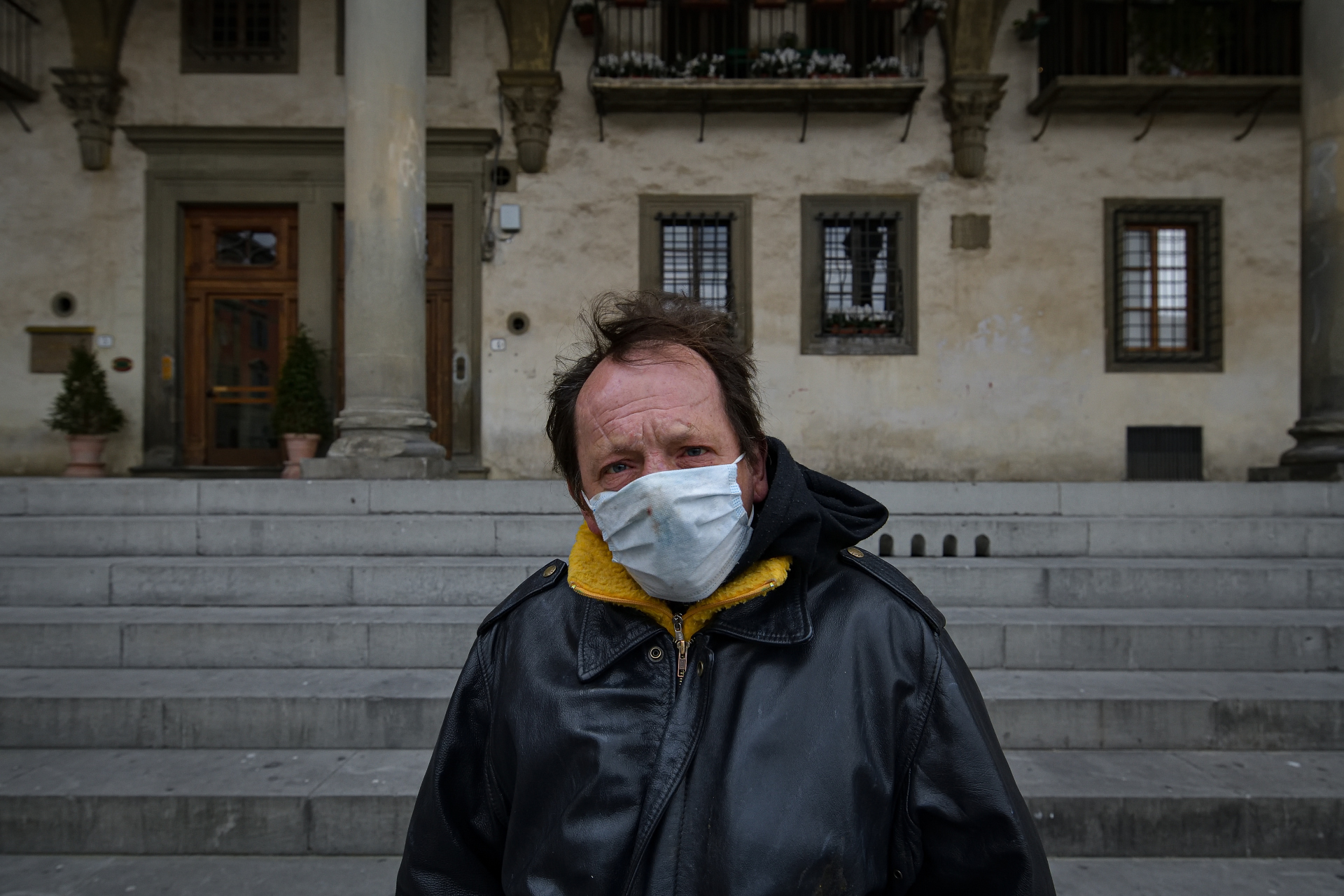
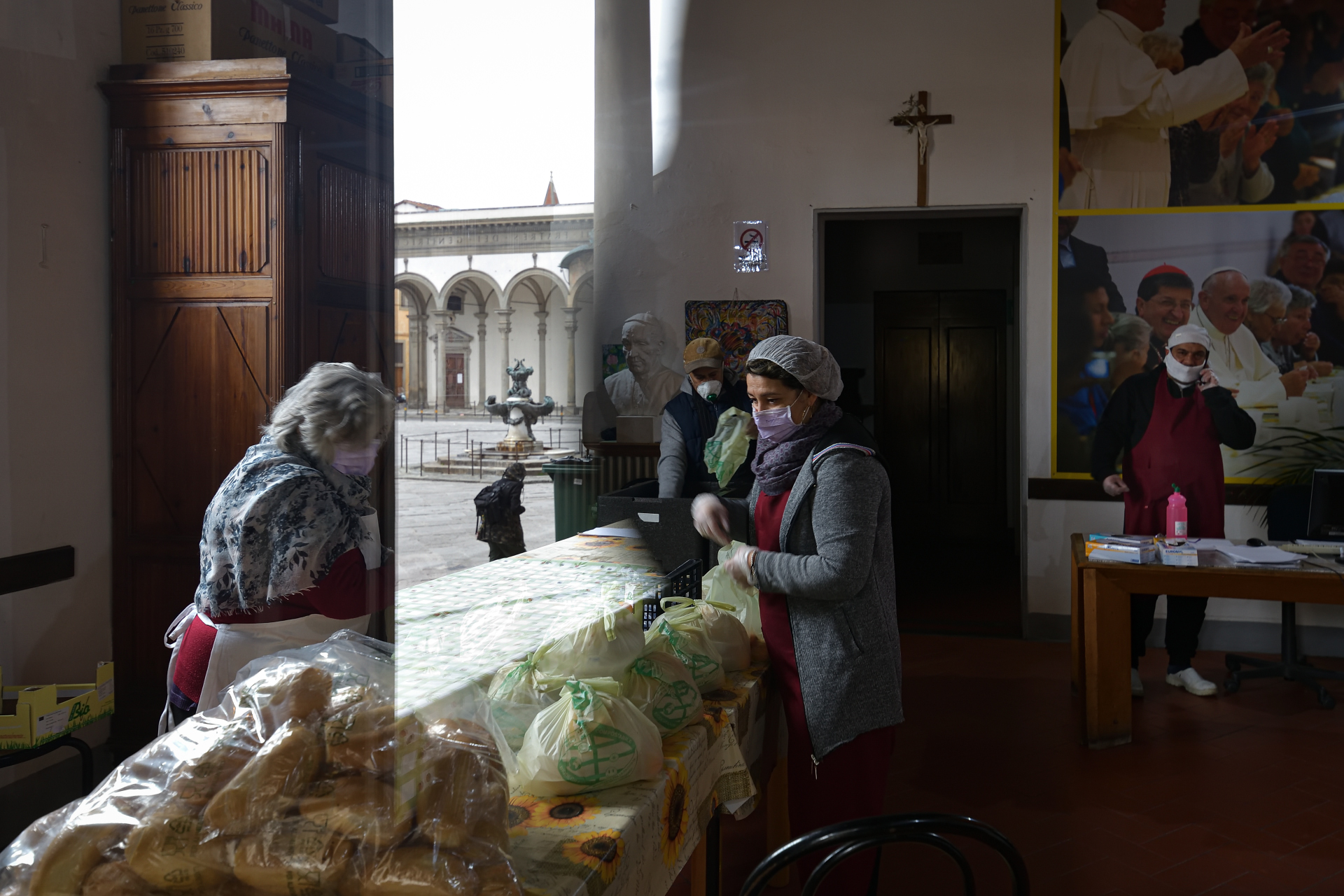
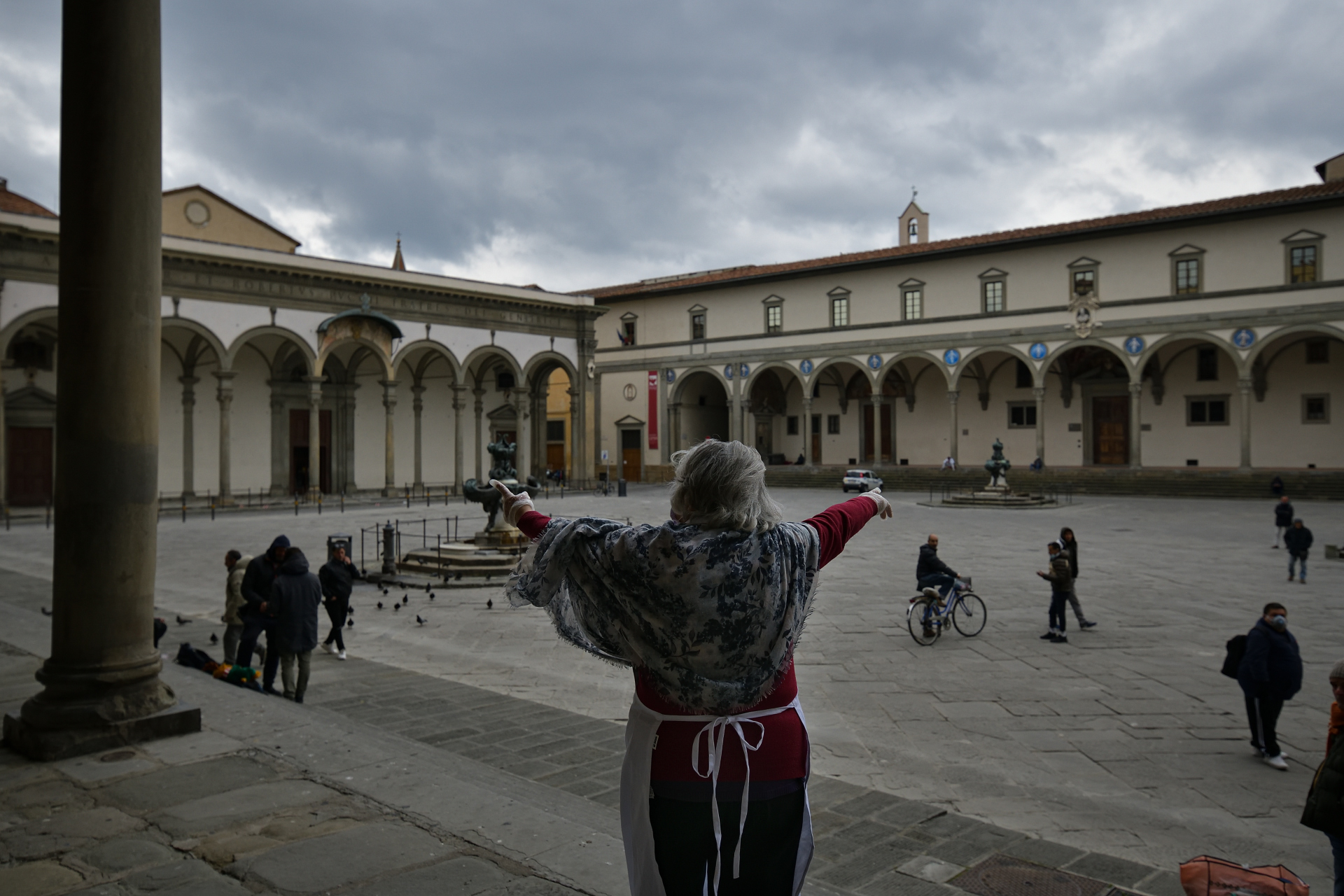
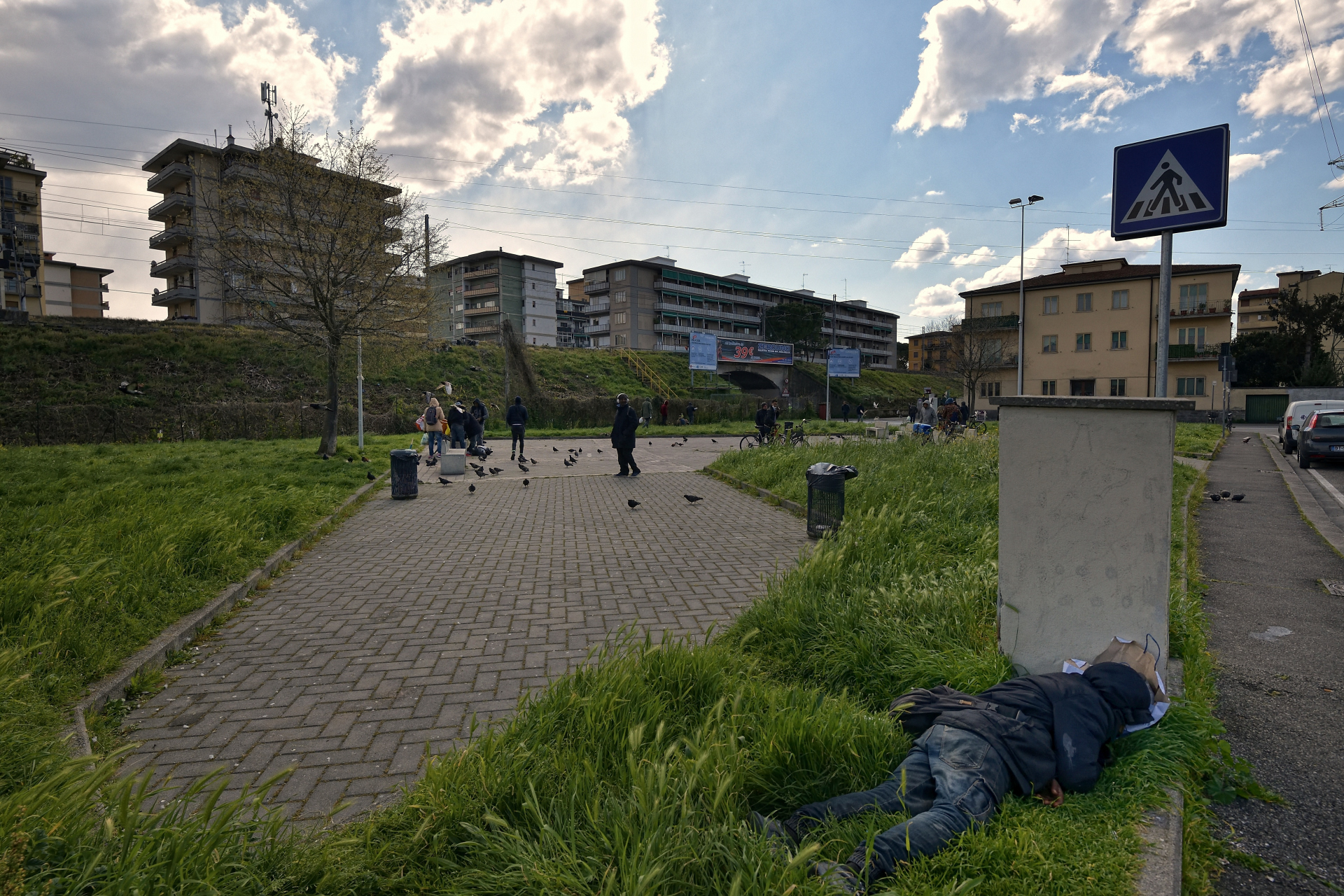
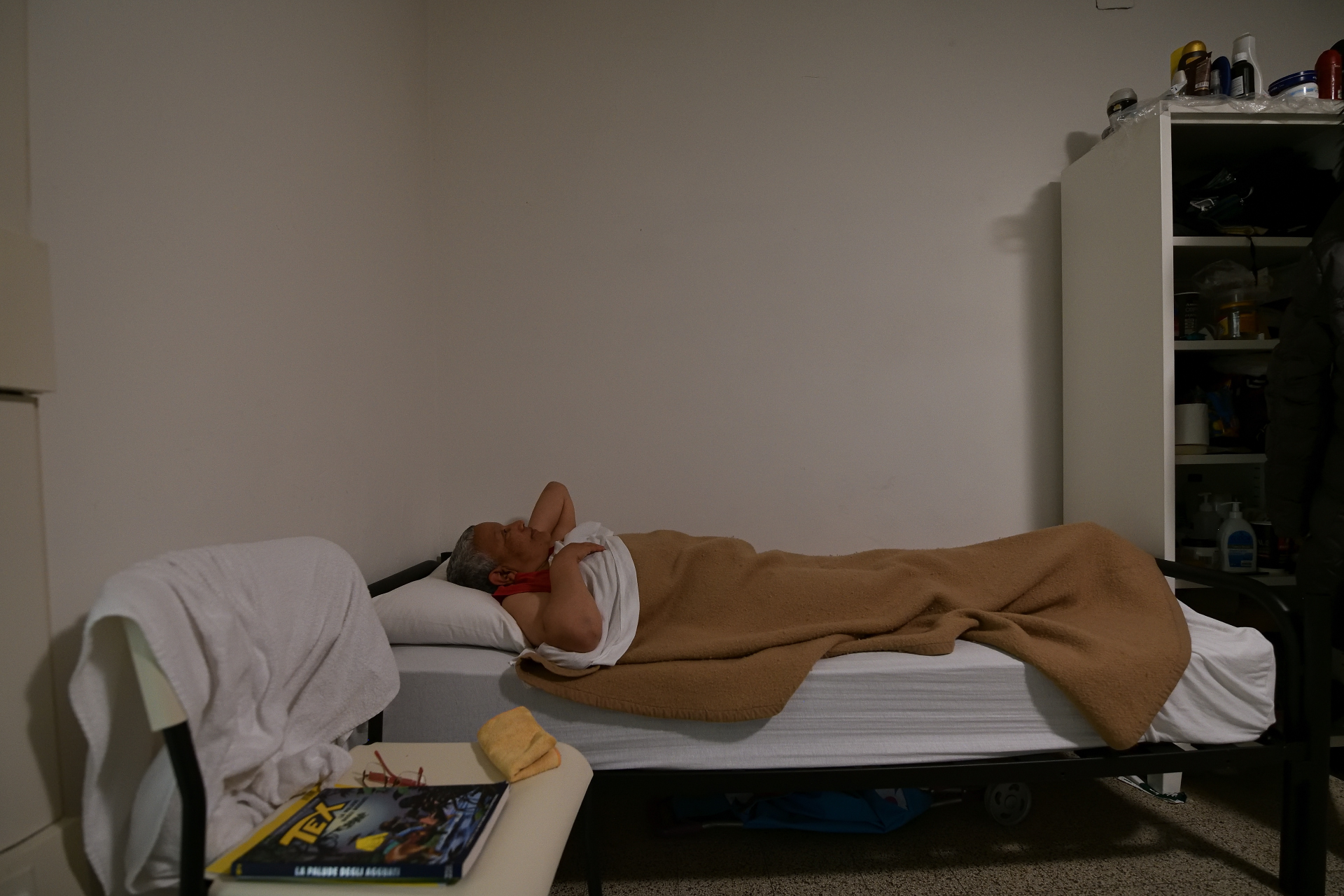
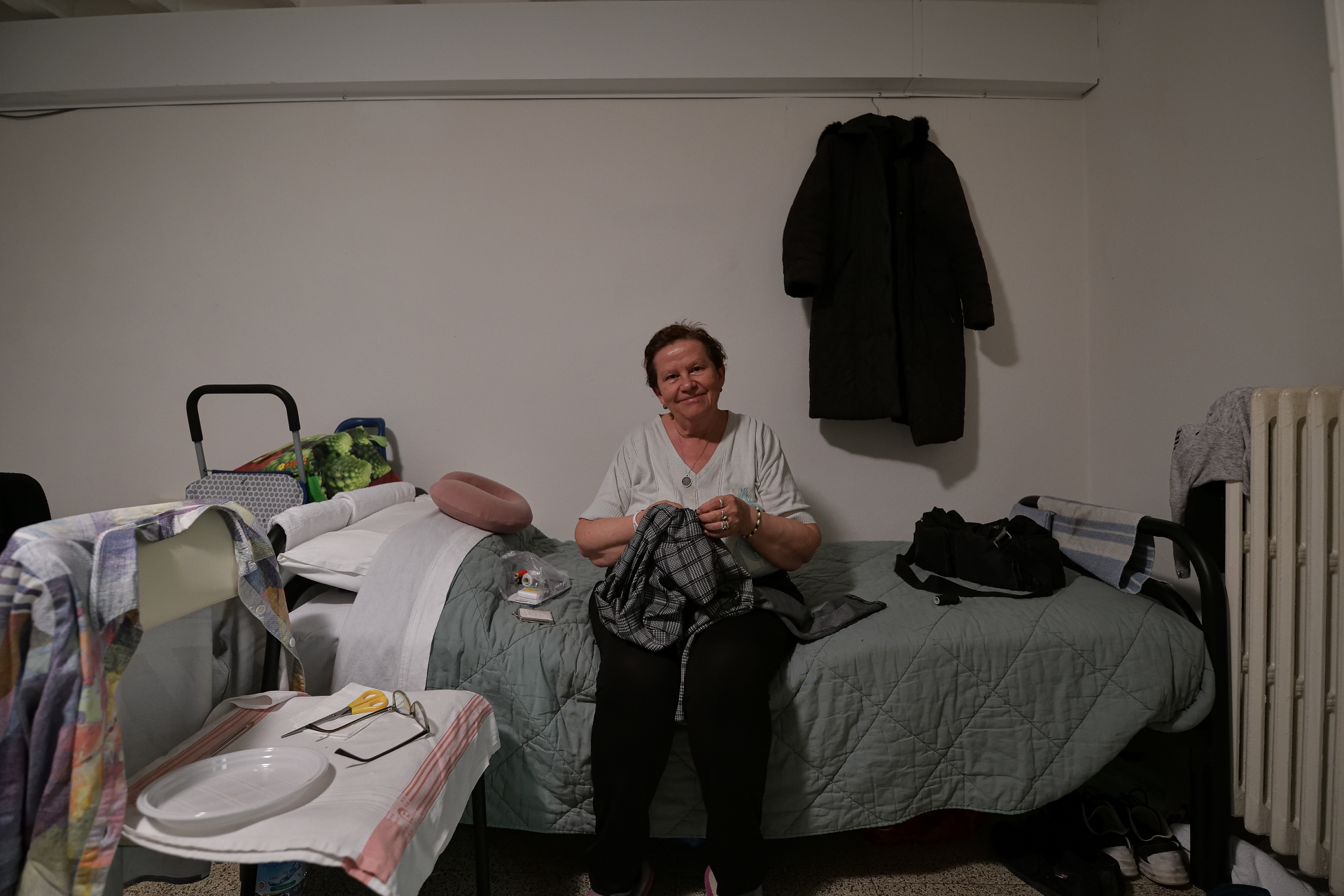
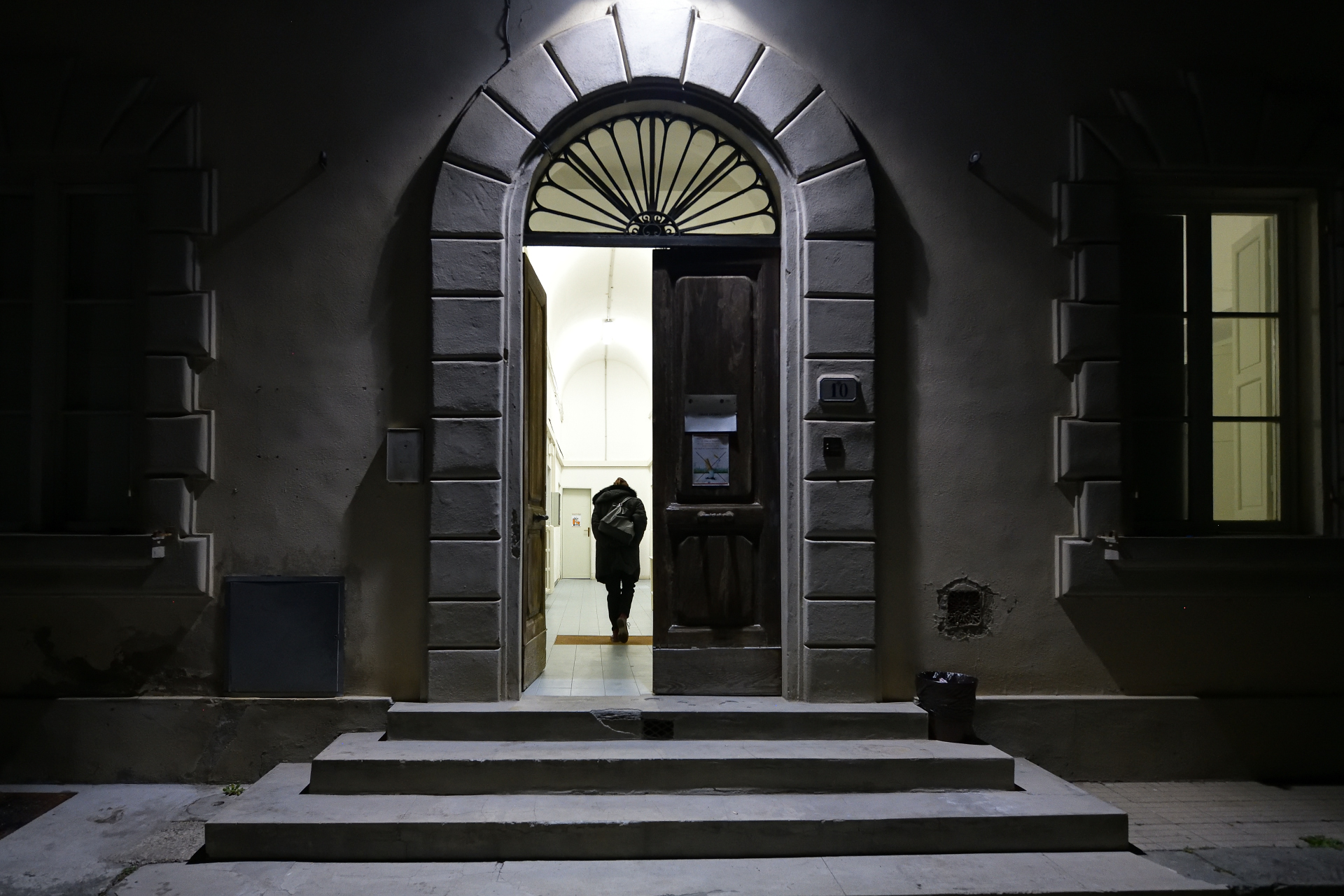
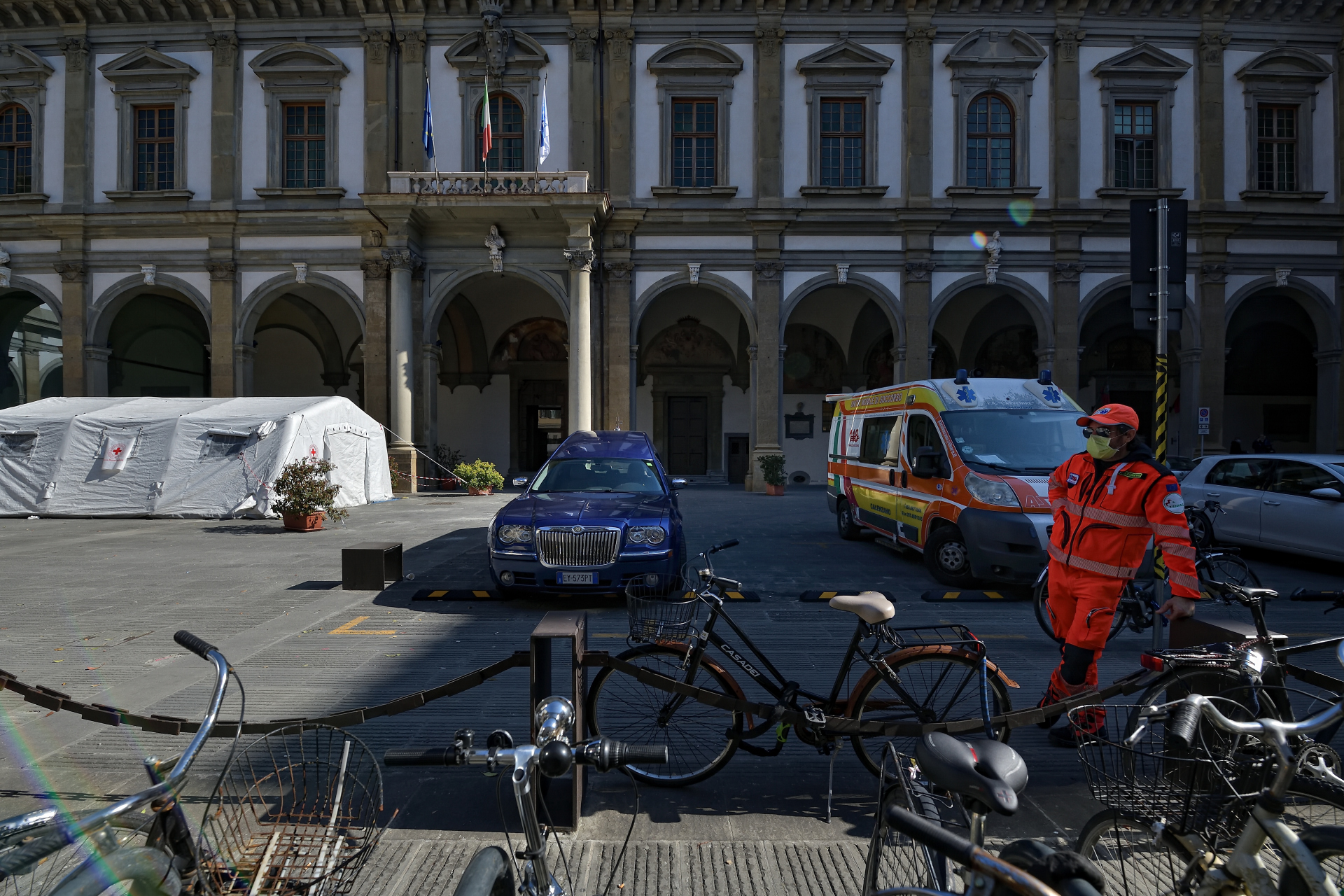
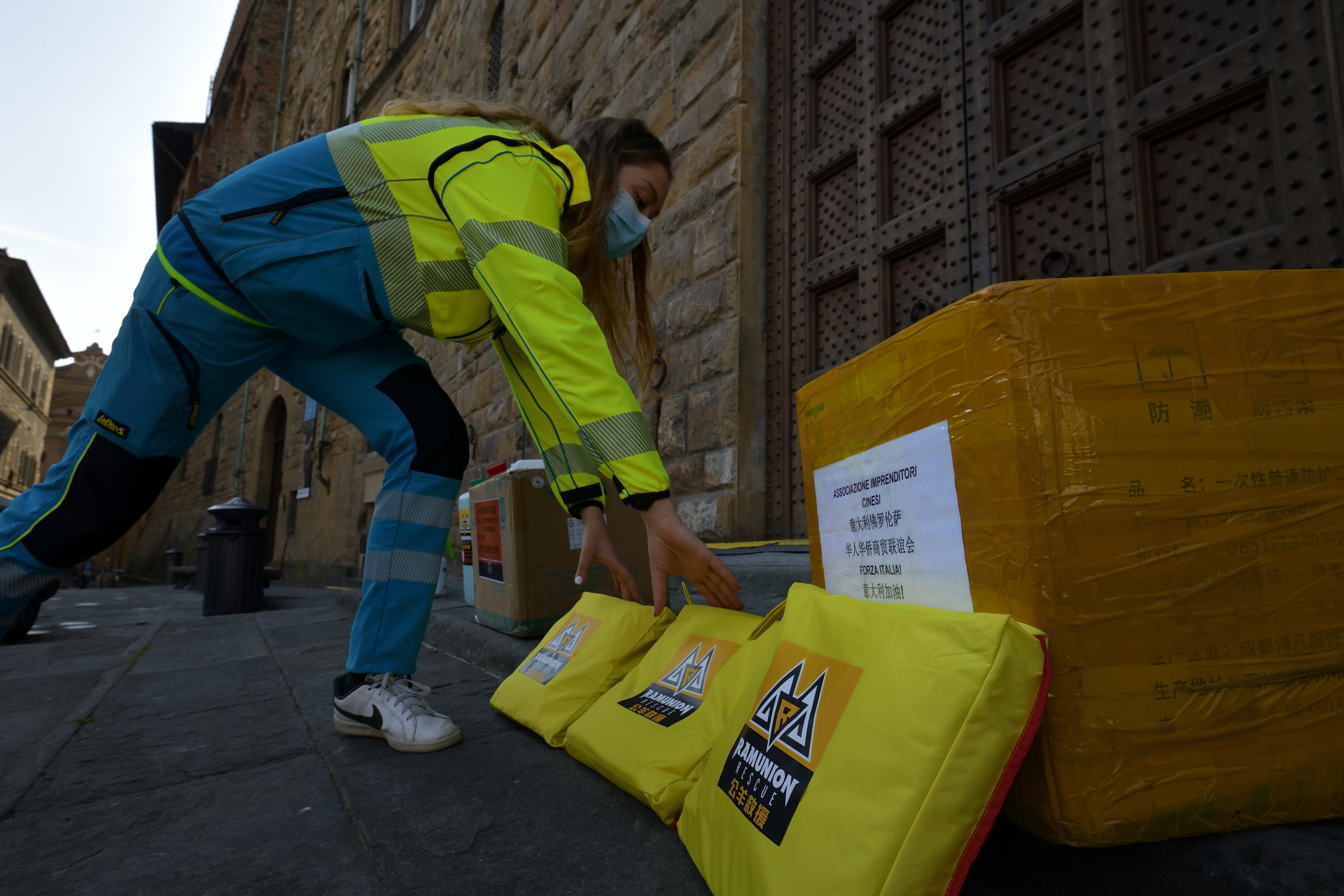
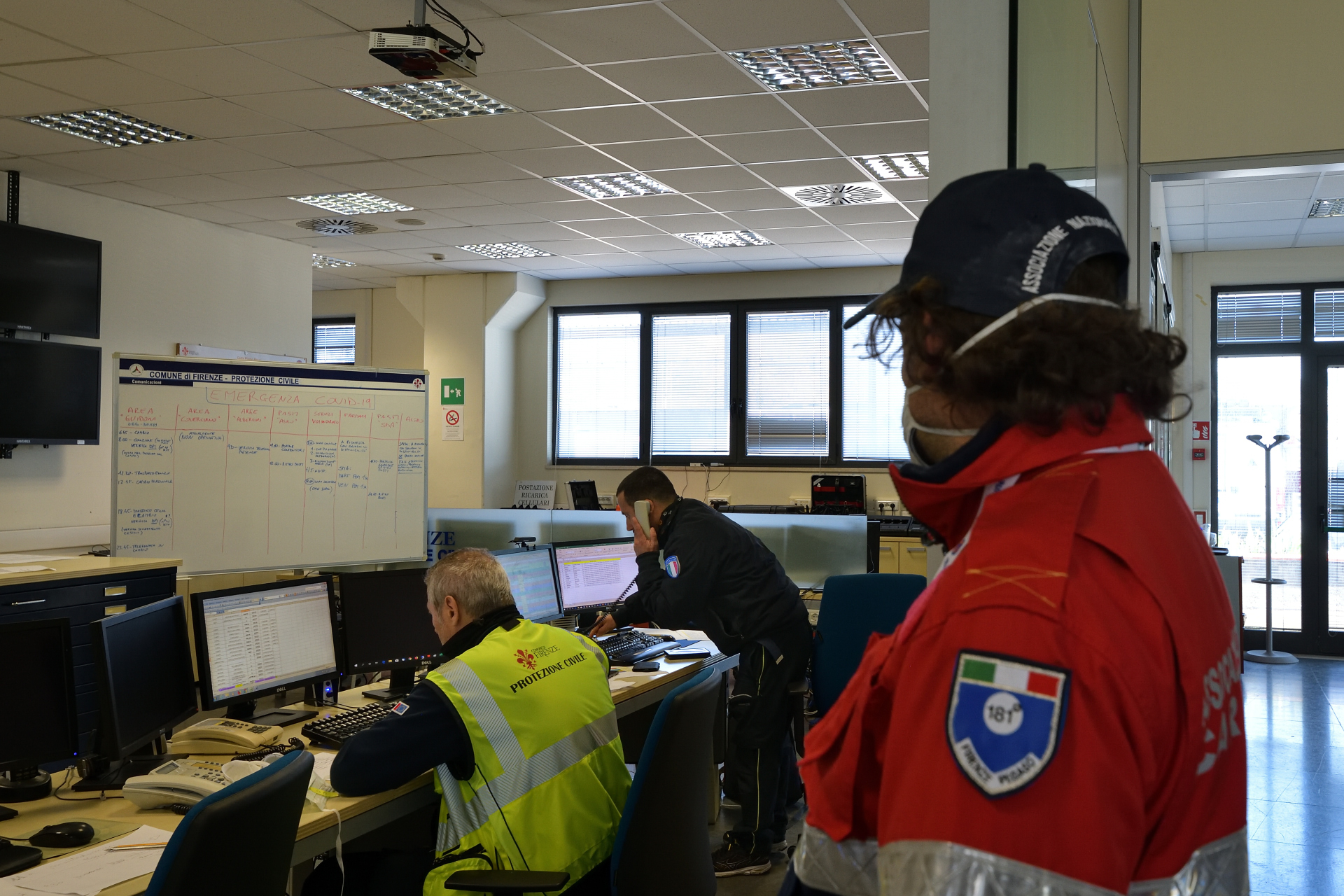
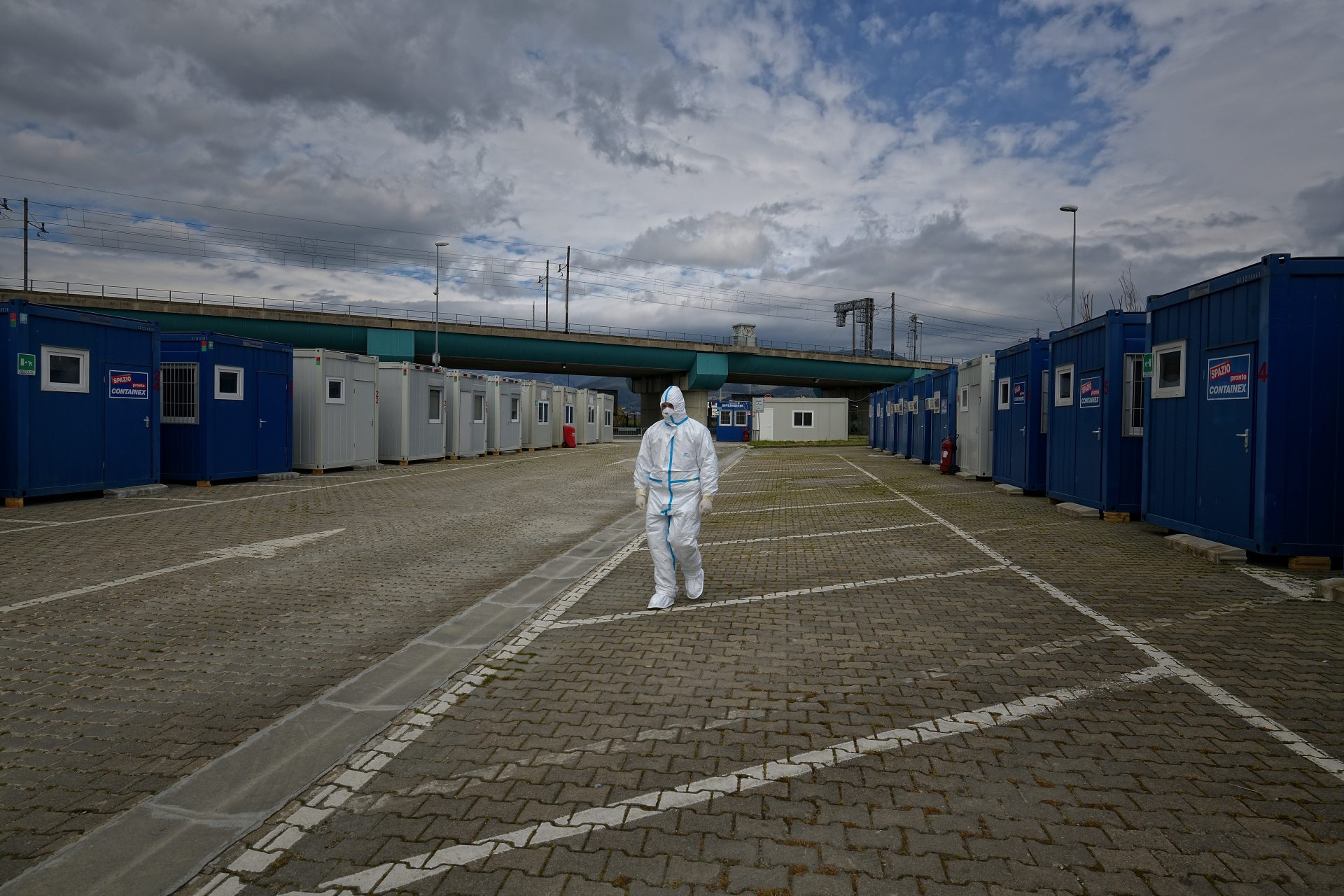
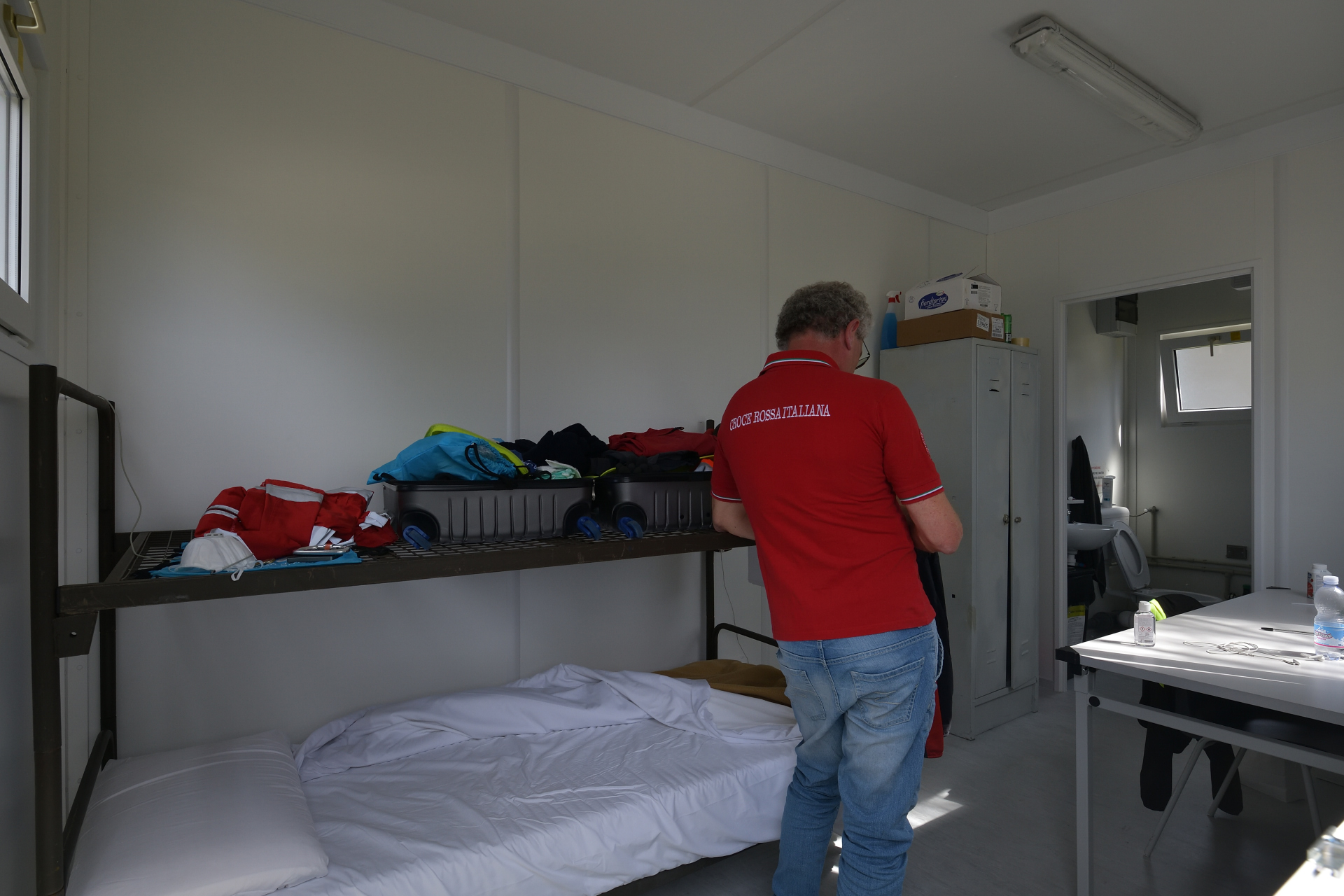
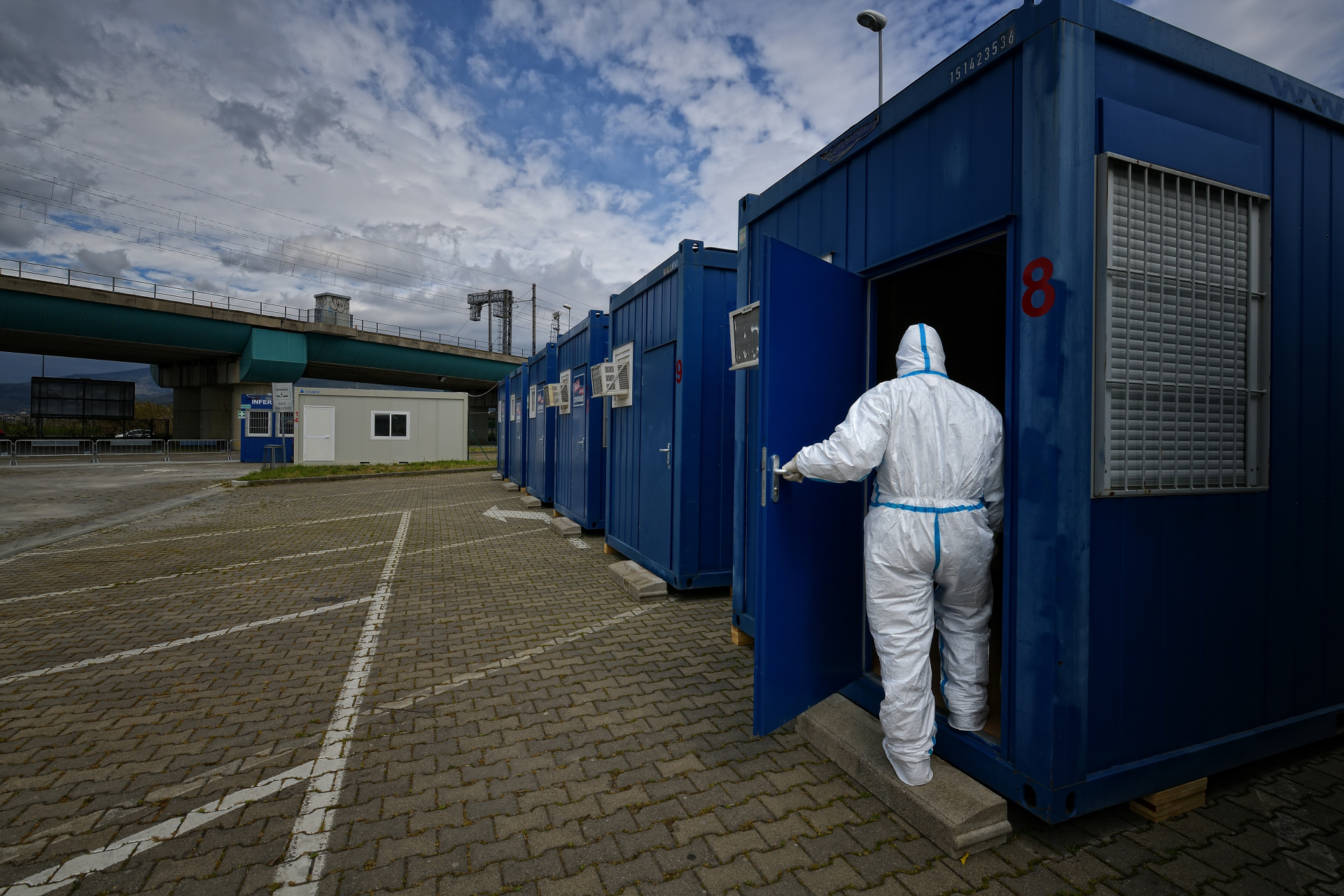
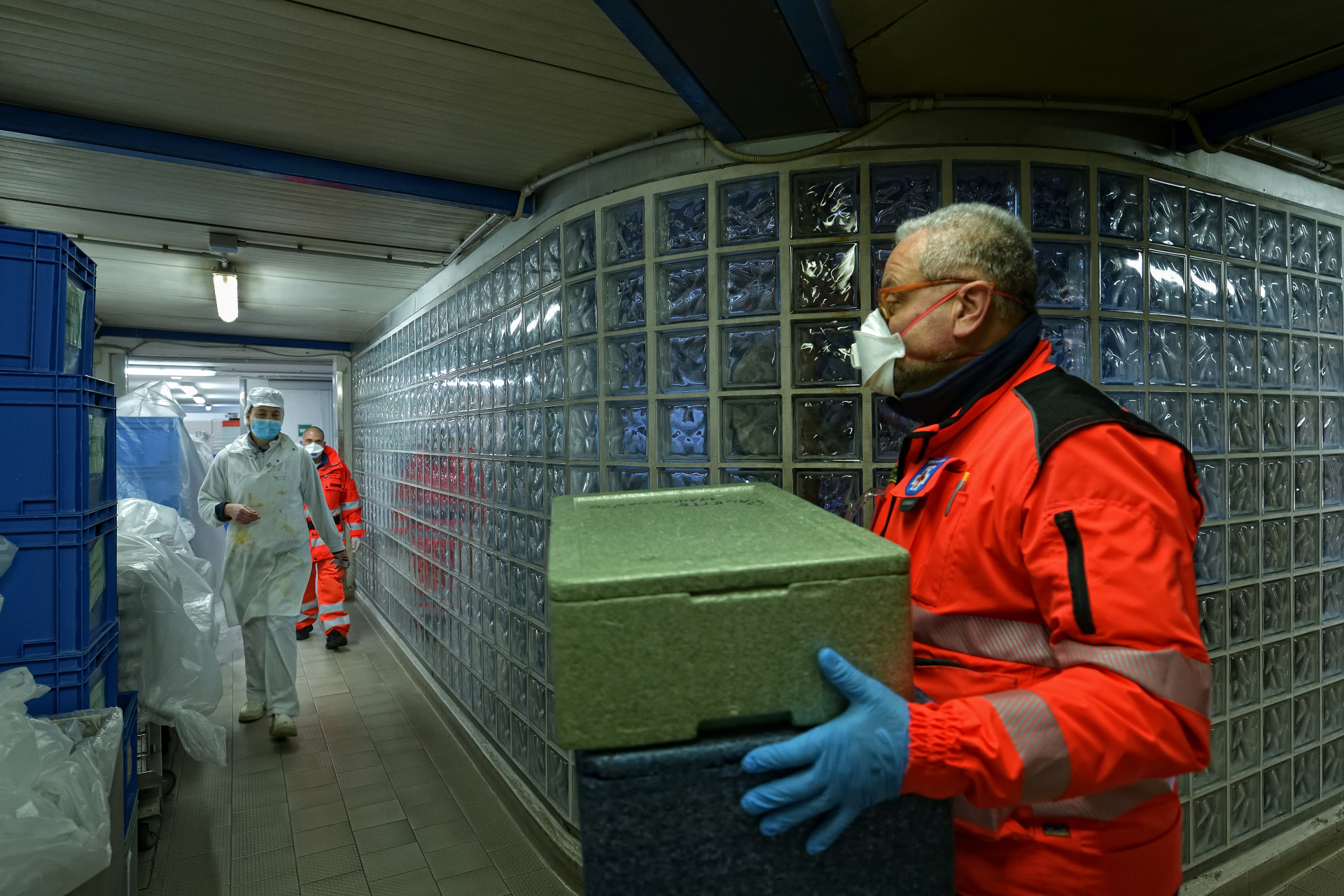
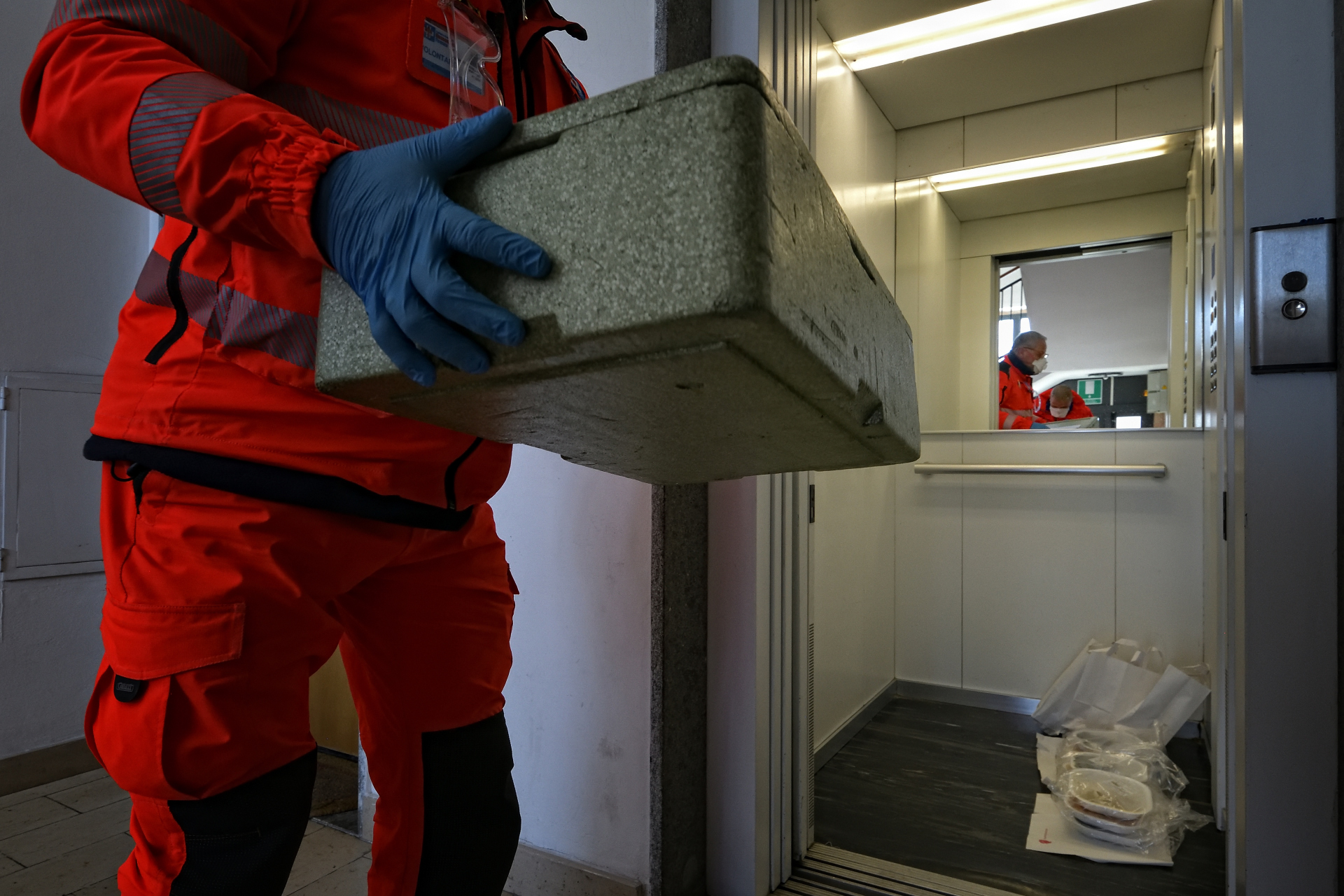
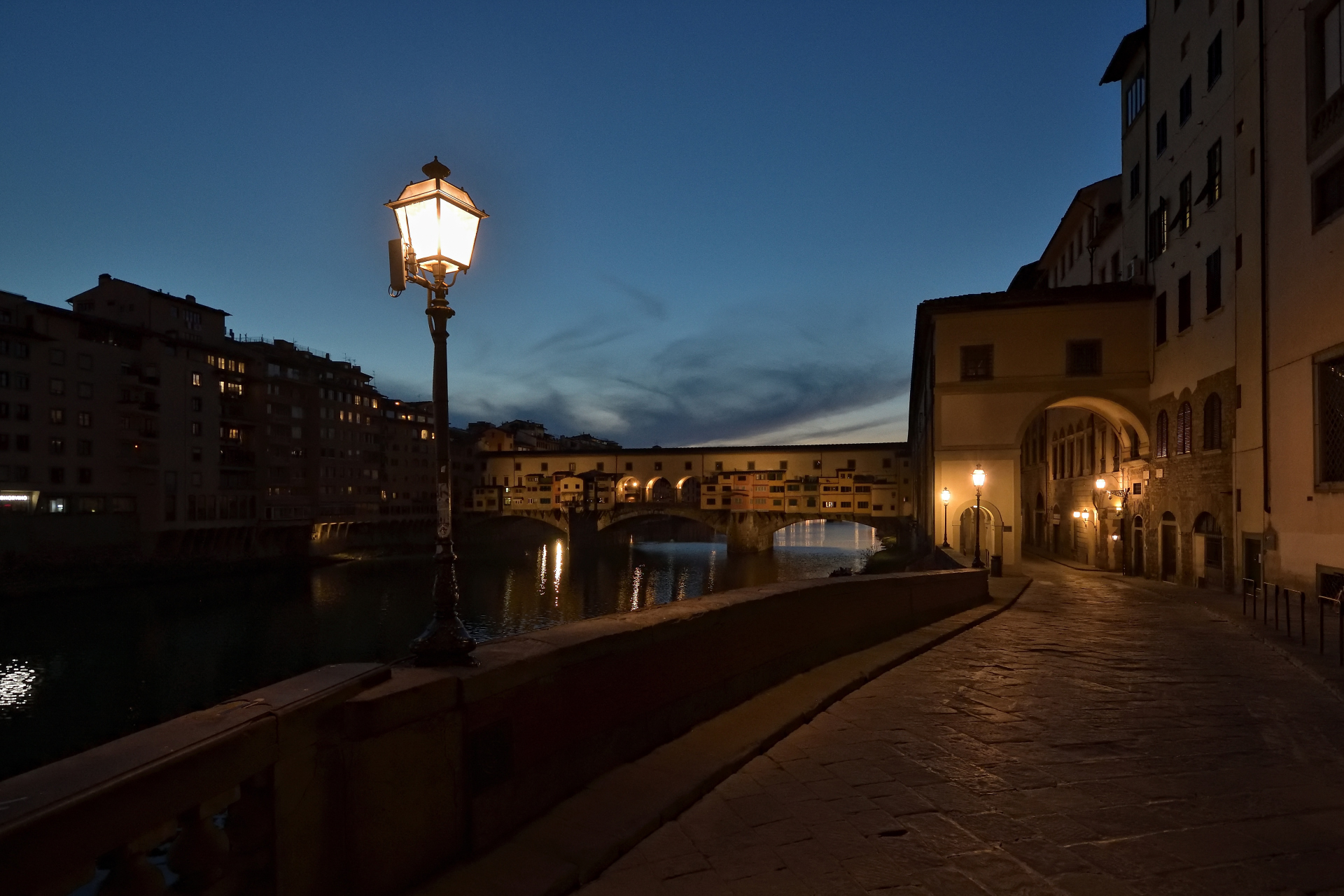
There are no comments
Add yours